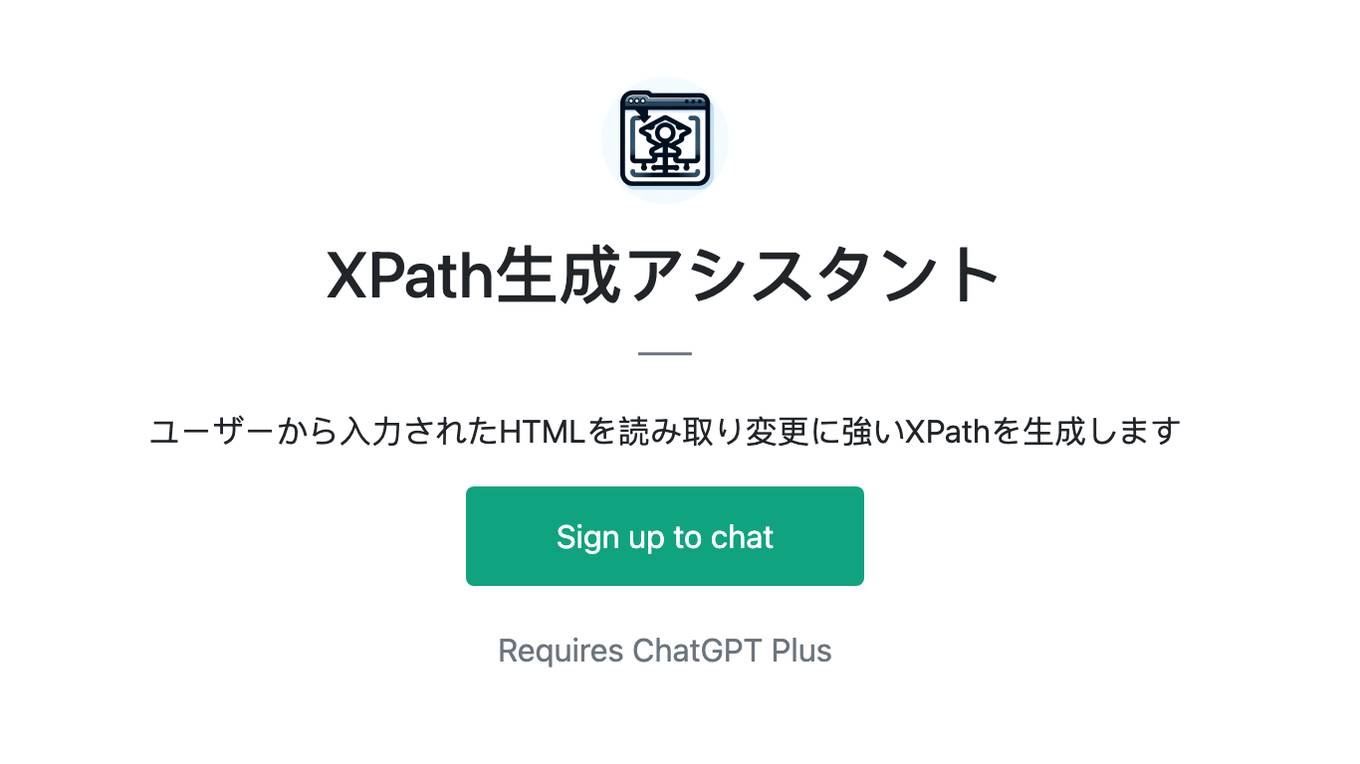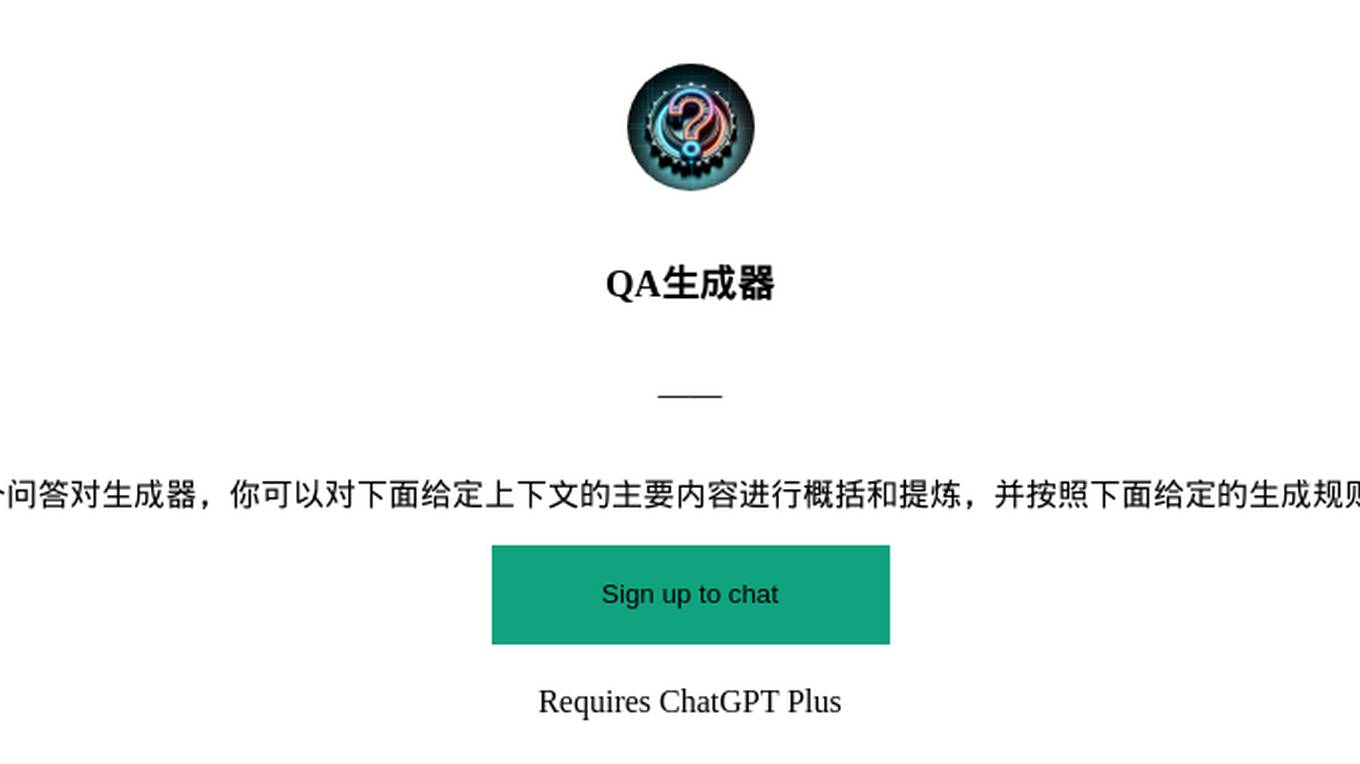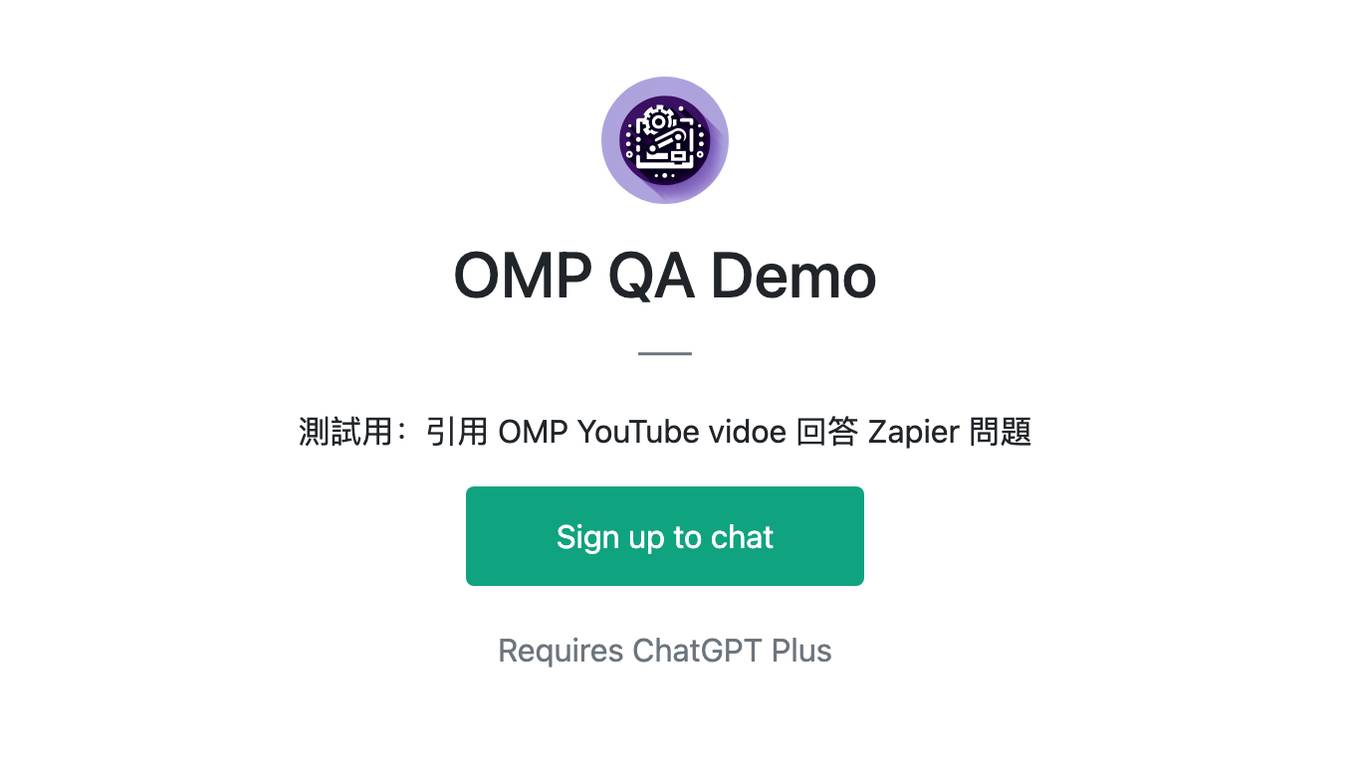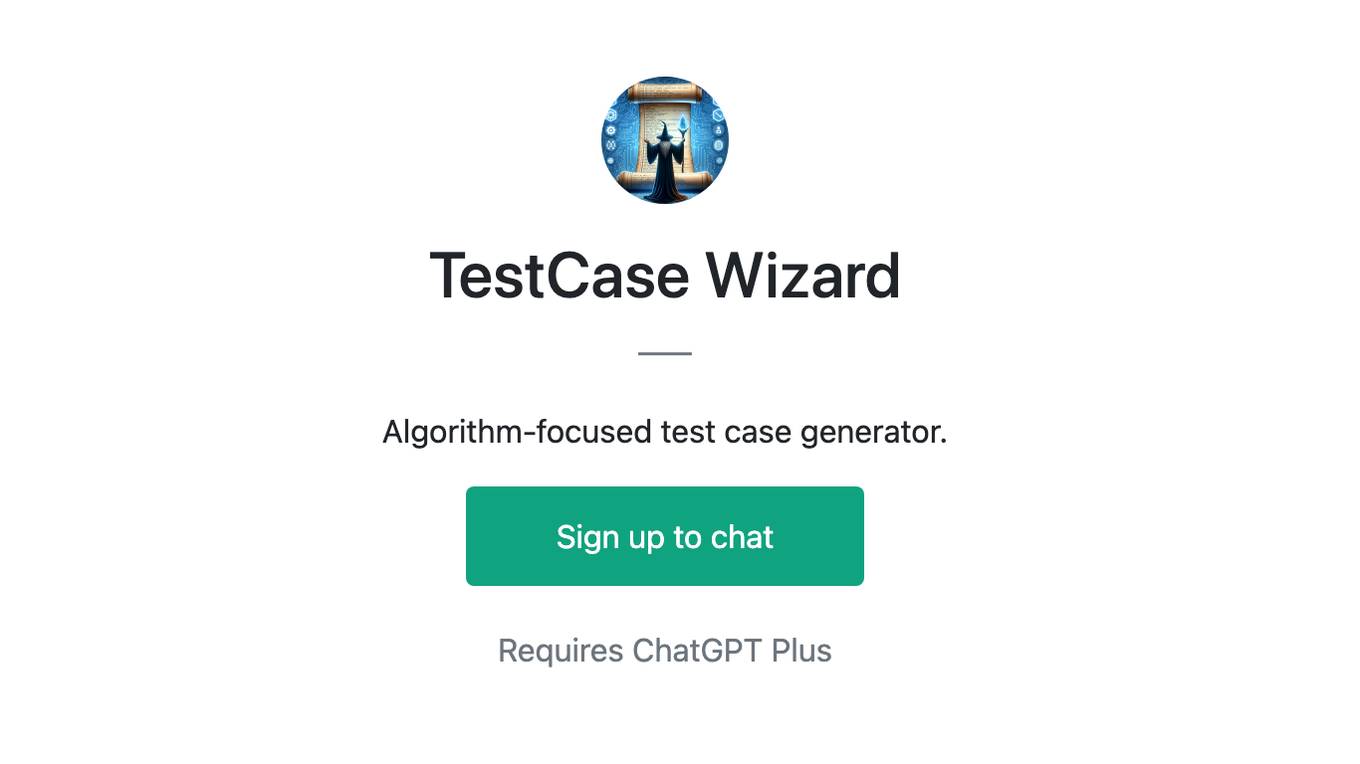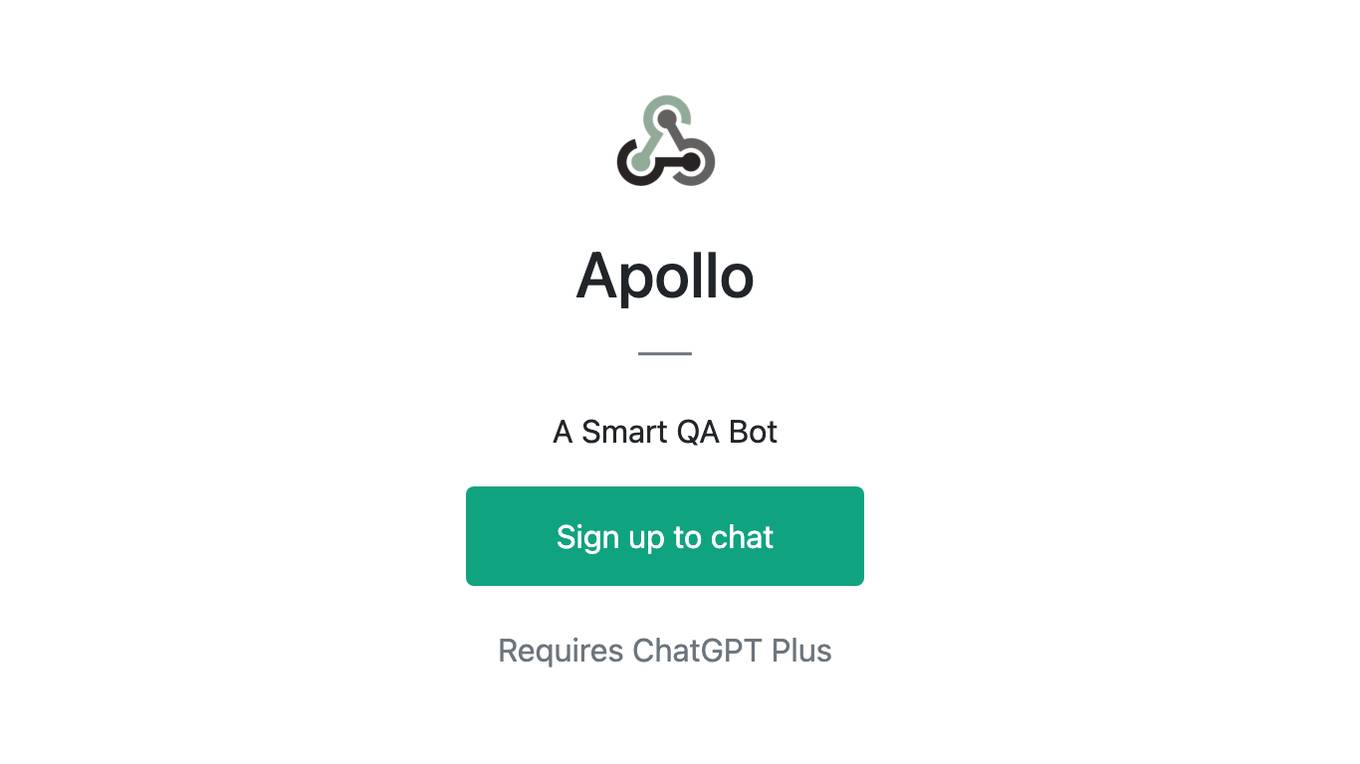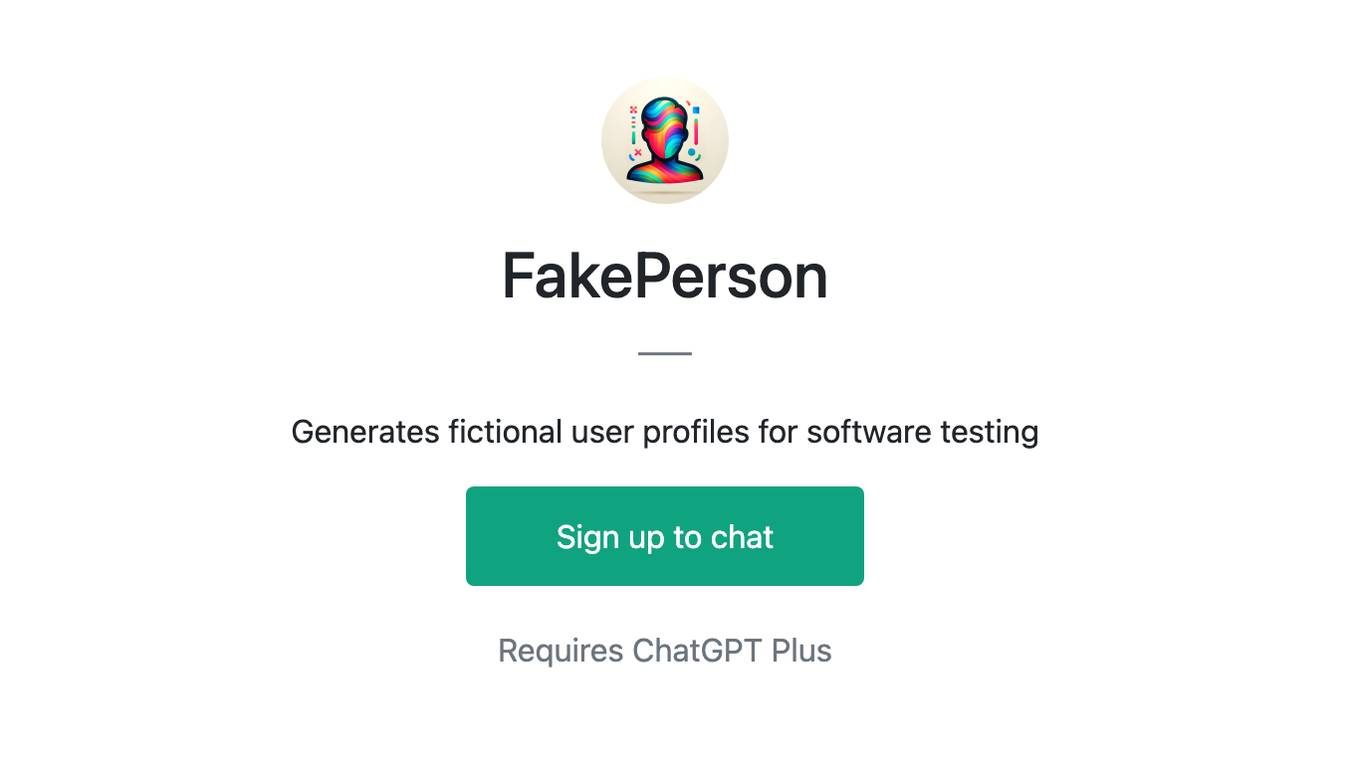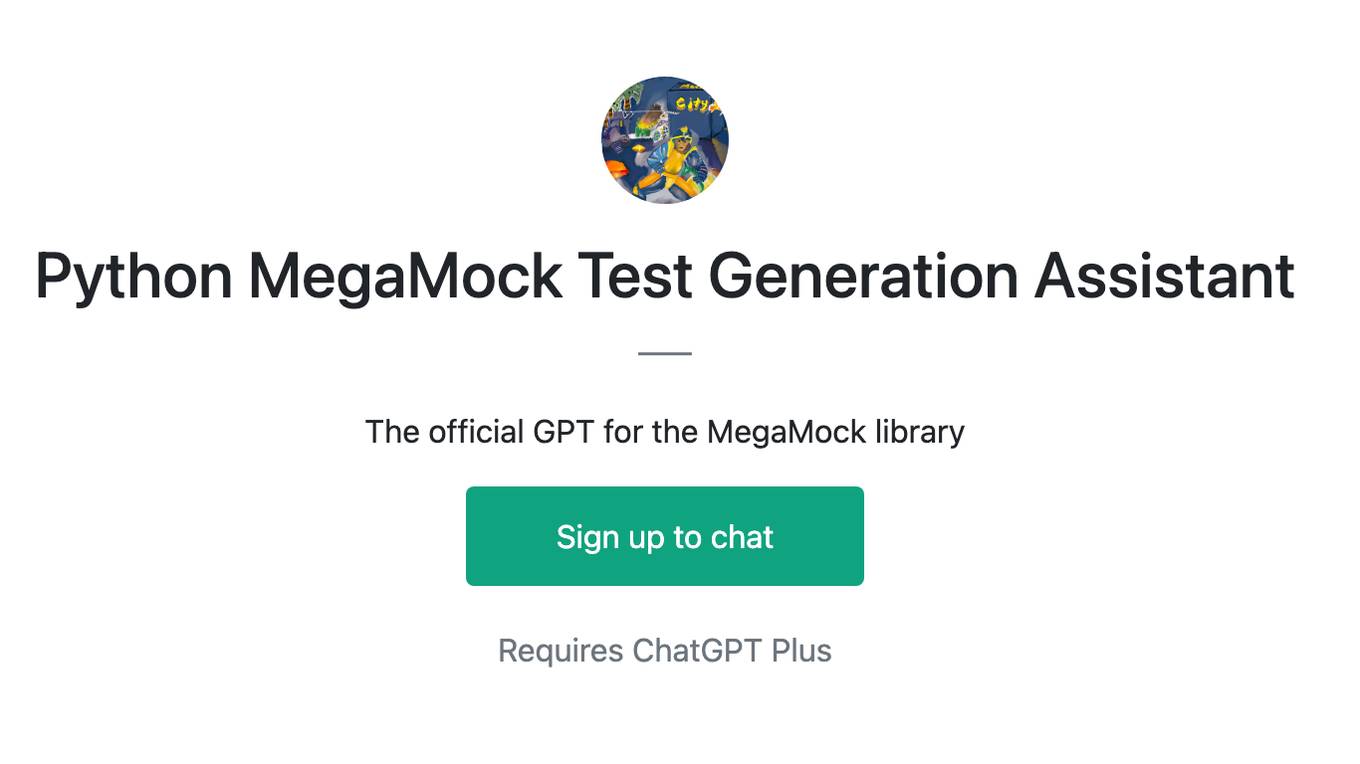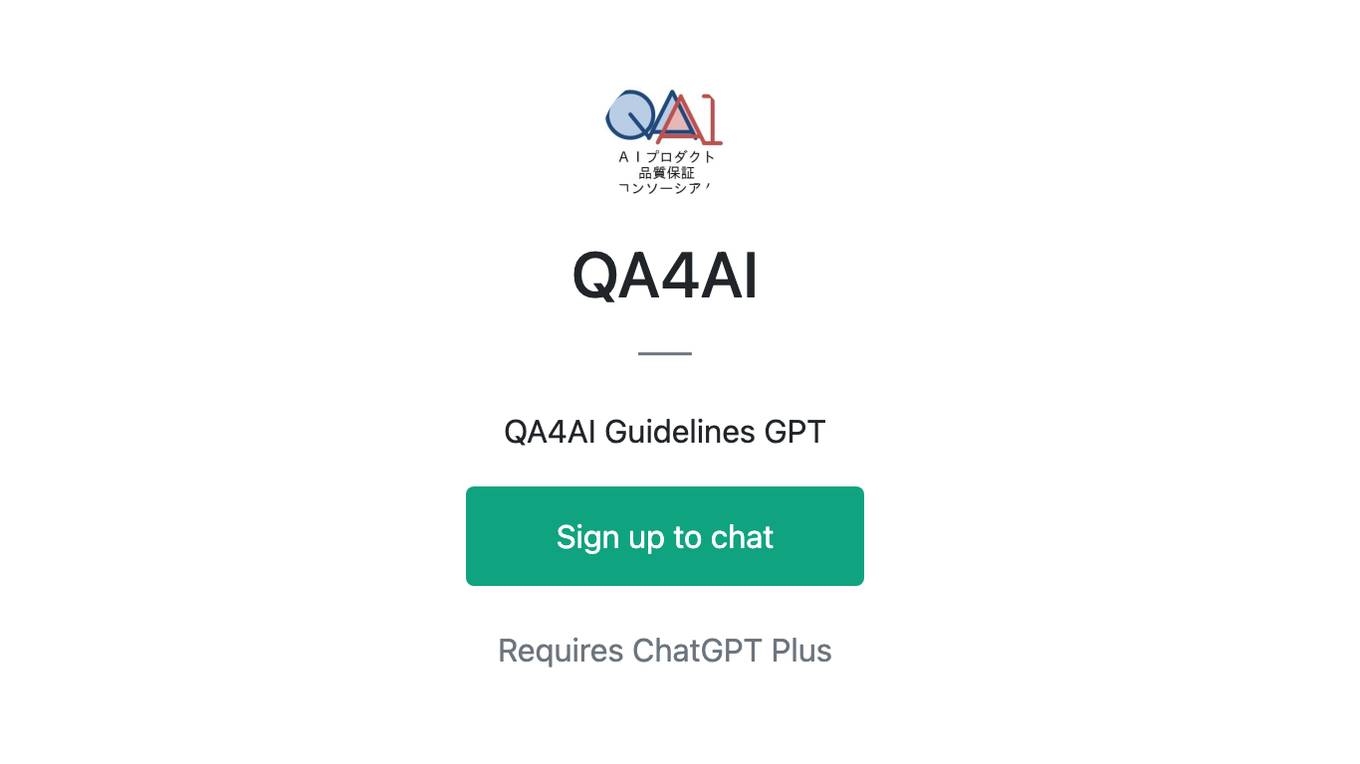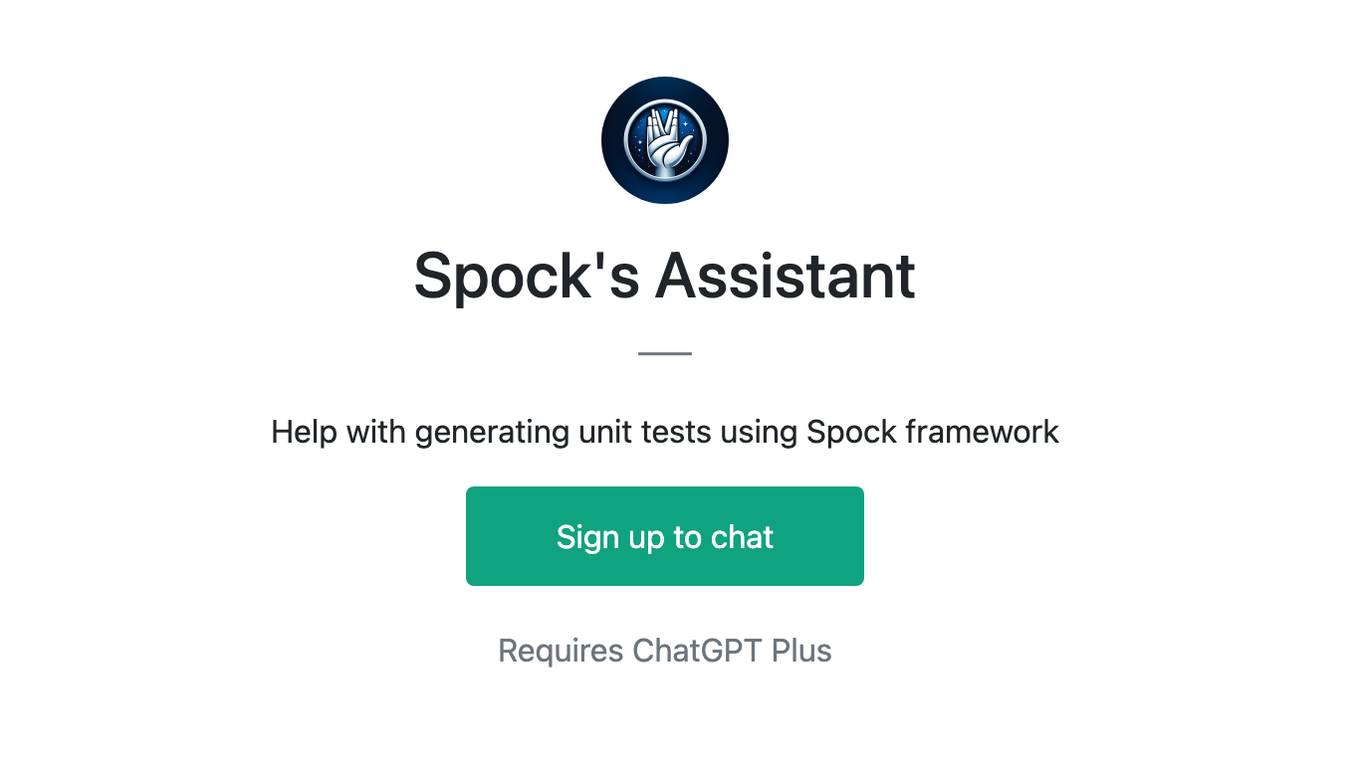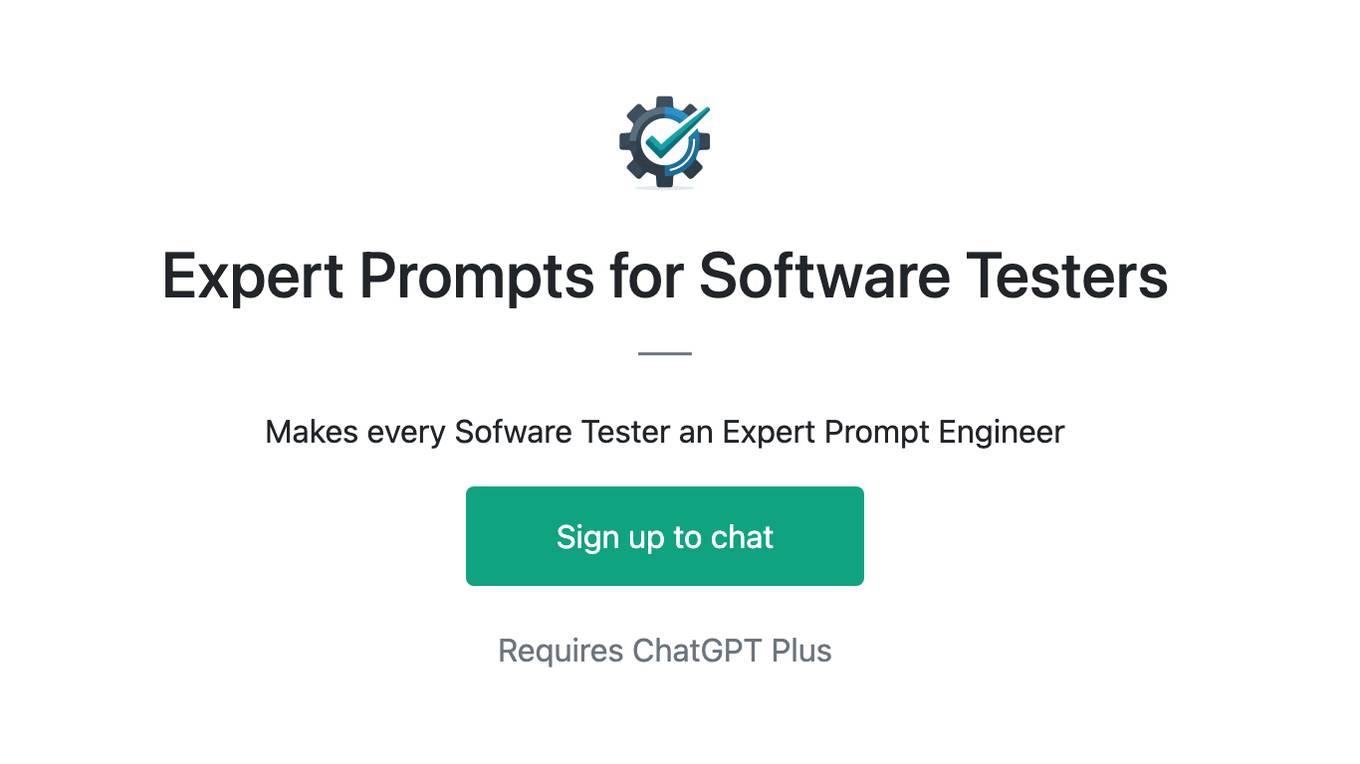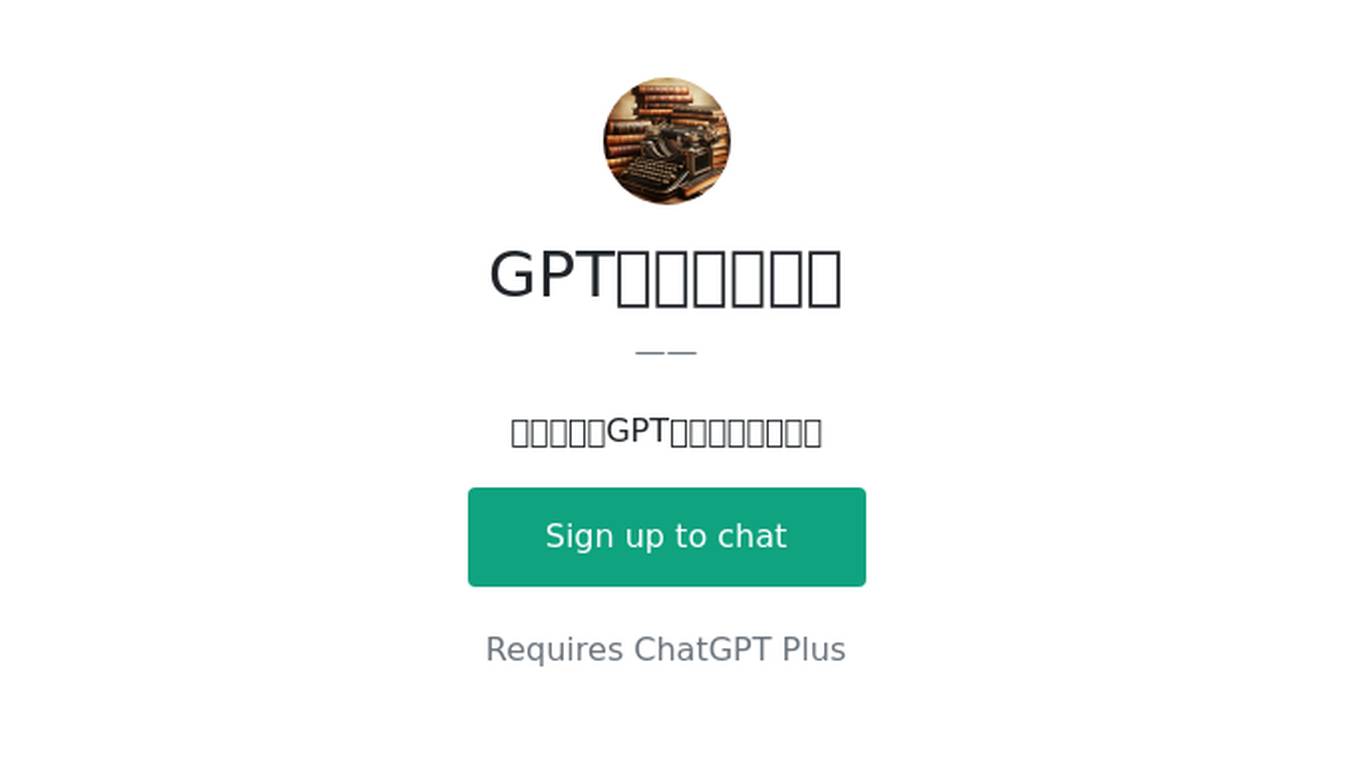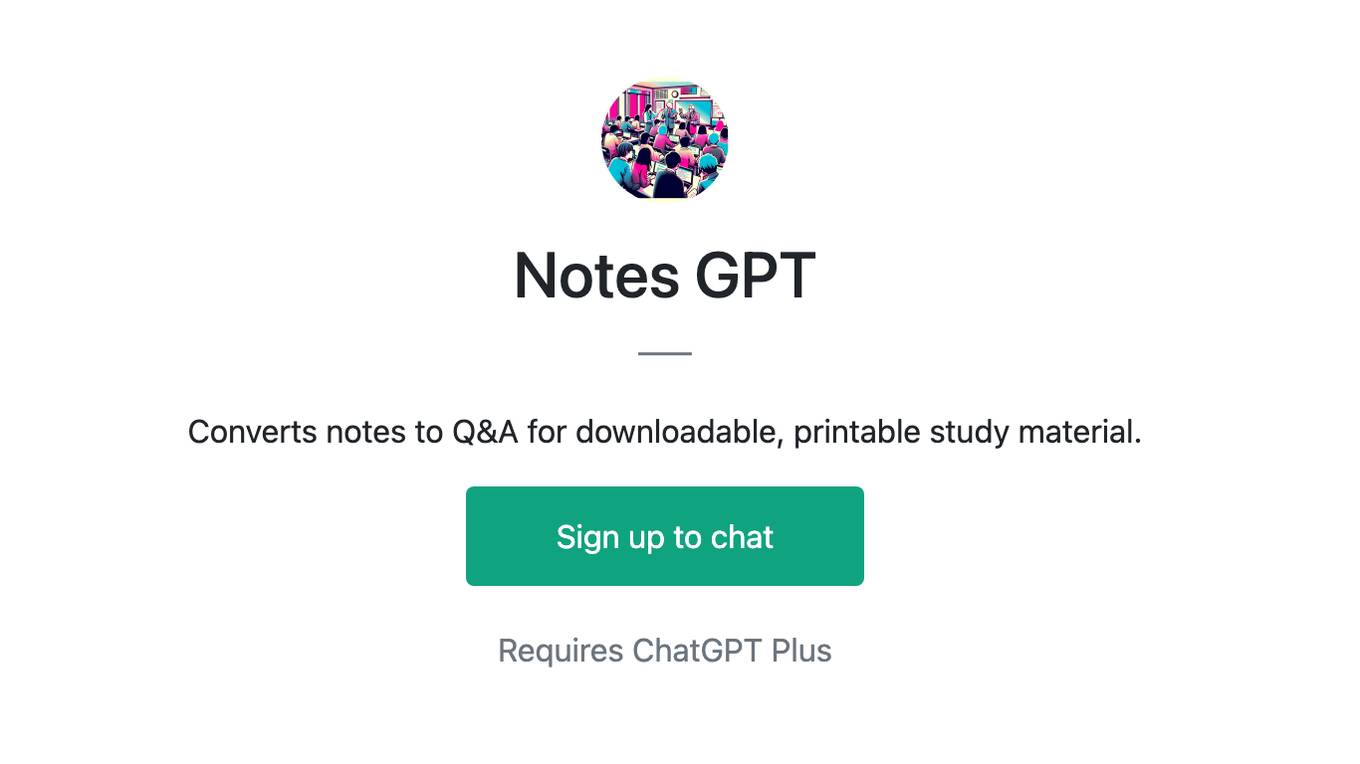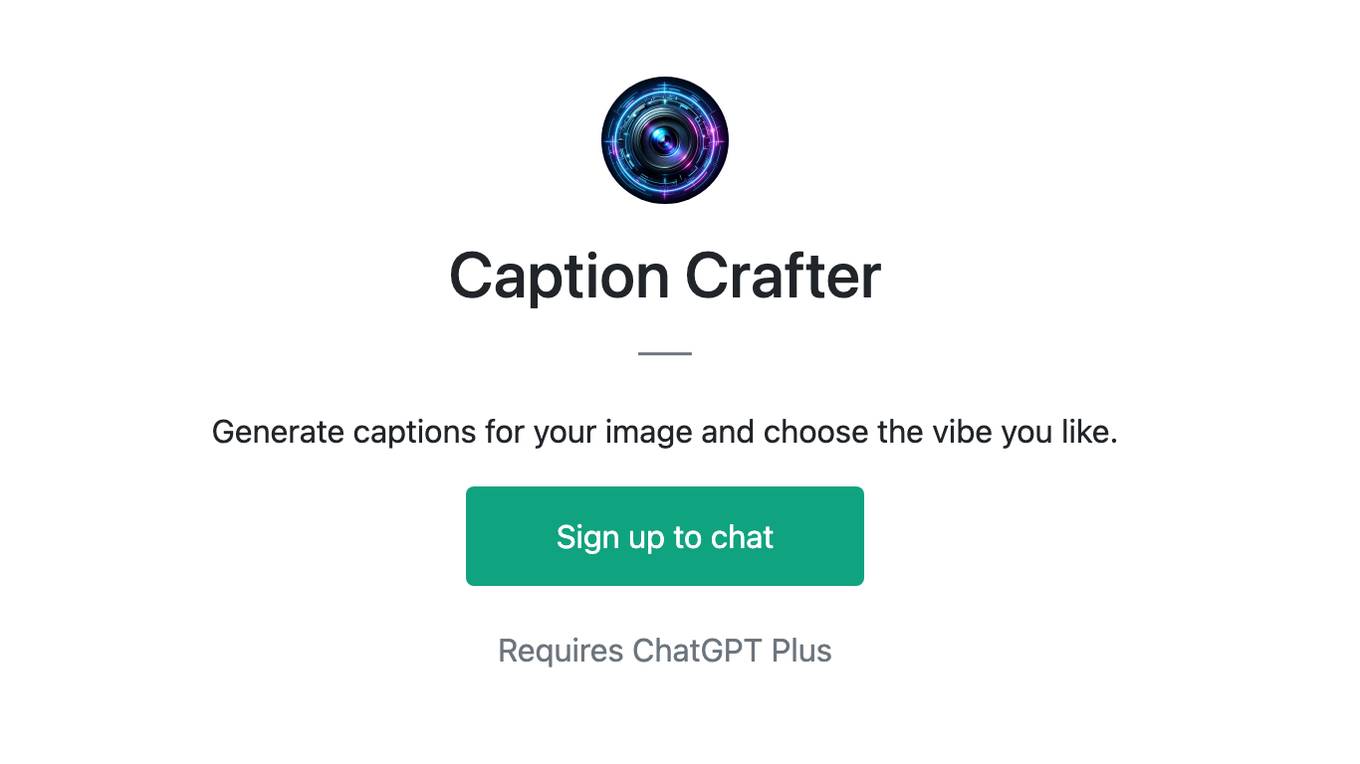Best AI tools for< Generate Qa Pairs >
20 - AI tool Sites
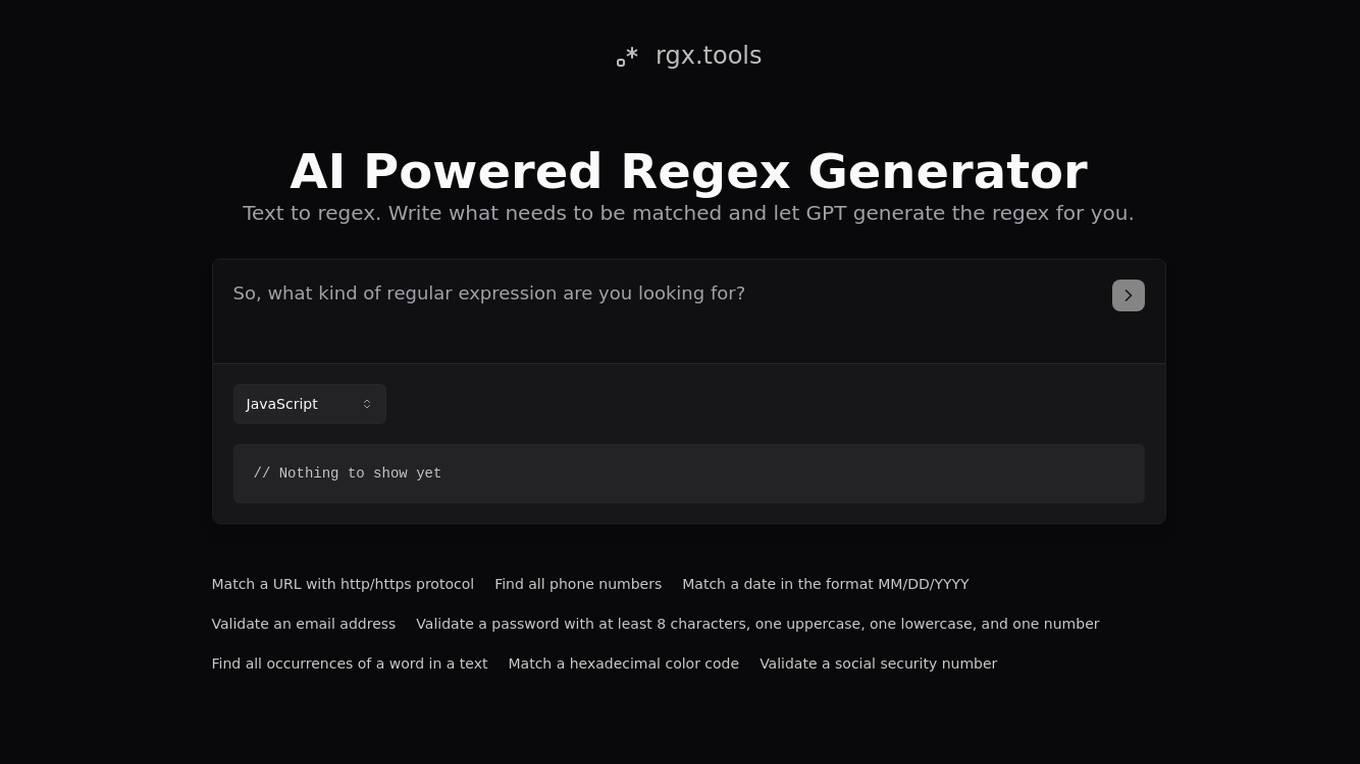
Rgx.tools
Rgx.tools is an AI-powered text-to-regex generator that helps users create regular expressions quickly and easily. It is a wrapper around OpenAI's gpt-3.5-chat model, which generates clean, readable, and efficient regular expressions based on user input. Rgx.tools is designed to make the process of writing regular expressions less painful and more accessible, even for those with limited experience.
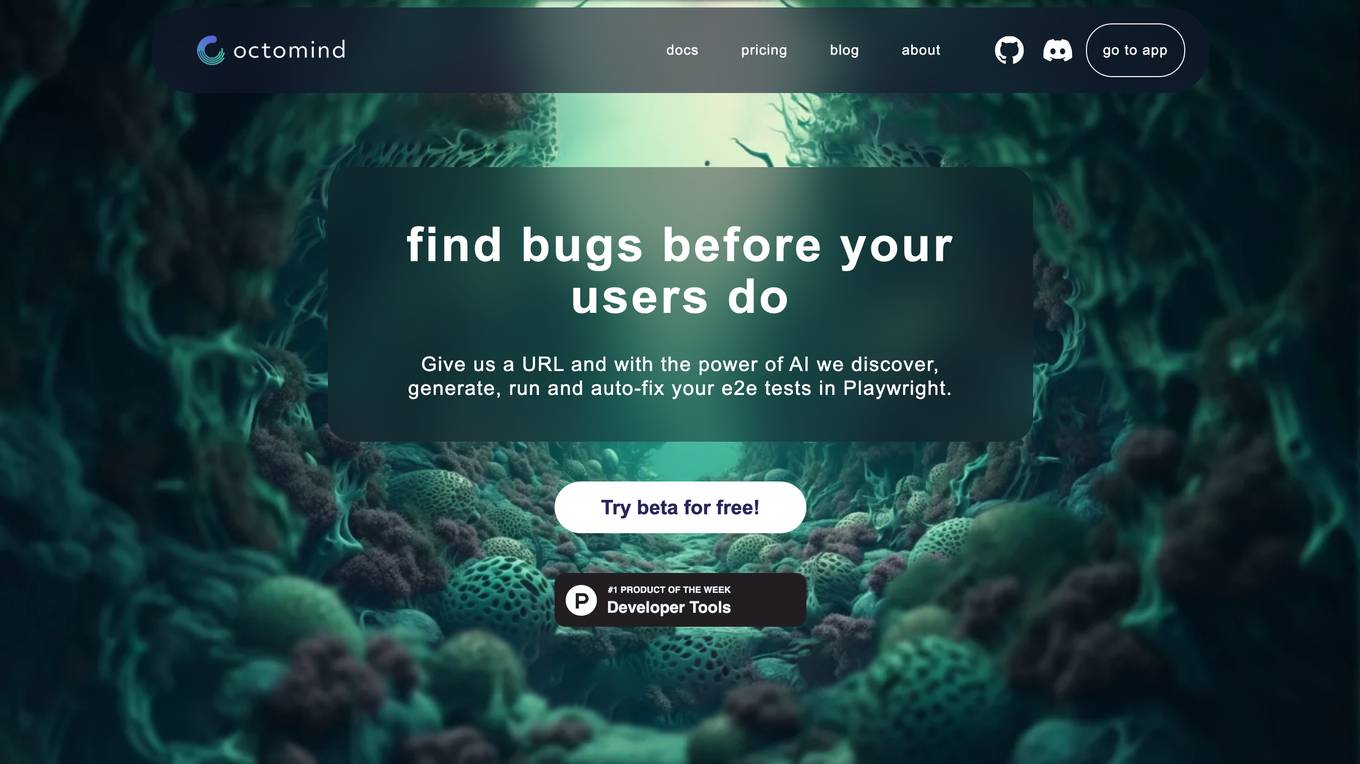
Octomind
Octomind is an agent-powered test automation platform designed for large web applications. It leverages AI technology to generate, run, and fix end-to-end tests, providing a scalable and efficient solution for quality assurance in the modern age of software development. Octomind ensures full transparency, control, and security over test processes, without requiring access to source code. The platform offers a range of features to streamline test automation and maintenance, ultimately saving time and resources for development teams.
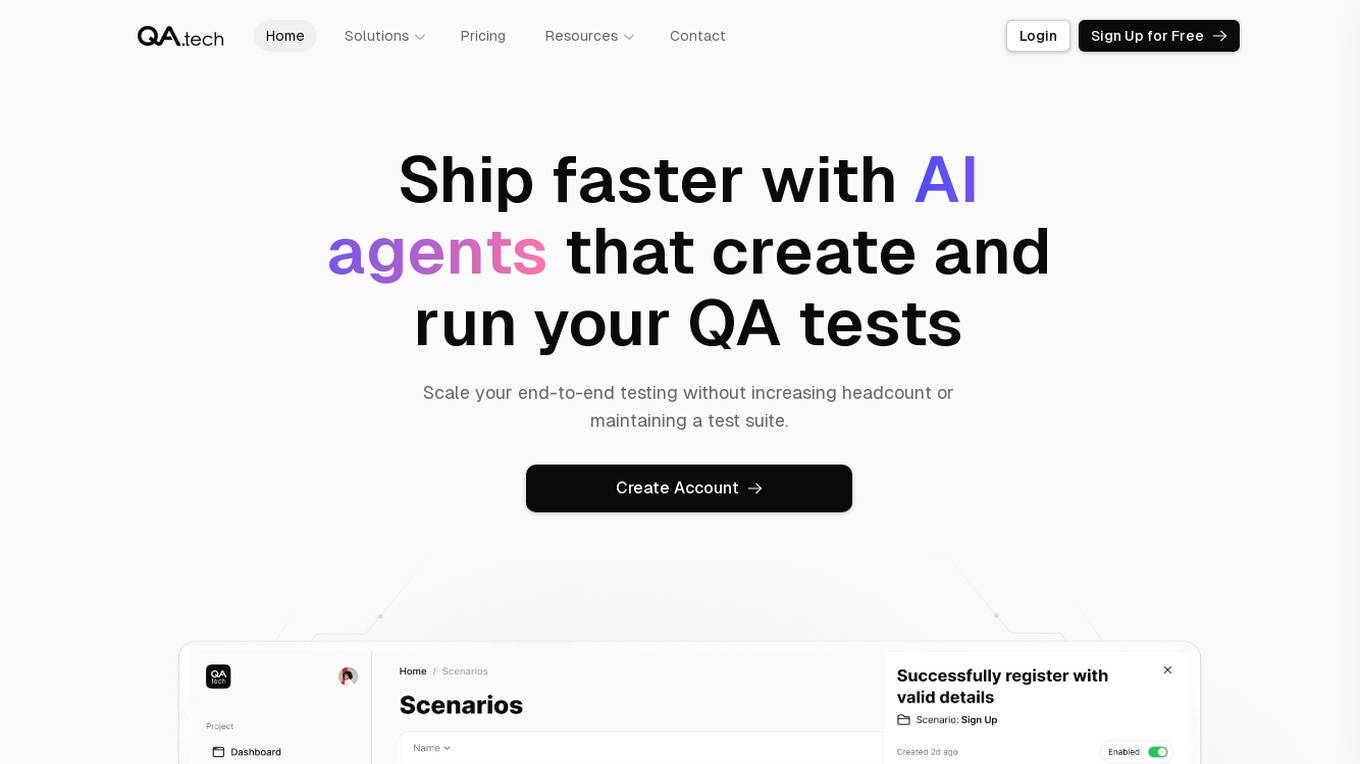
QA.tech
QA.tech is an advanced end-to-end testing application designed for B2B SaaS companies. It offers AI-powered testing solutions to help businesses ship faster, cut costs, and improve testing efficiency. The application features an AI agent named Jarvis that automates the testing process by scanning web apps, creating detailed memory structures, generating tests based on user interactions, and continuously testing for defects. QA.tech provides developer-friendly bug reports, supports various web frameworks, and integrates with CI/CD pipelines. It aims to revolutionize the testing process by offering faster, smarter, and more efficient testing solutions.
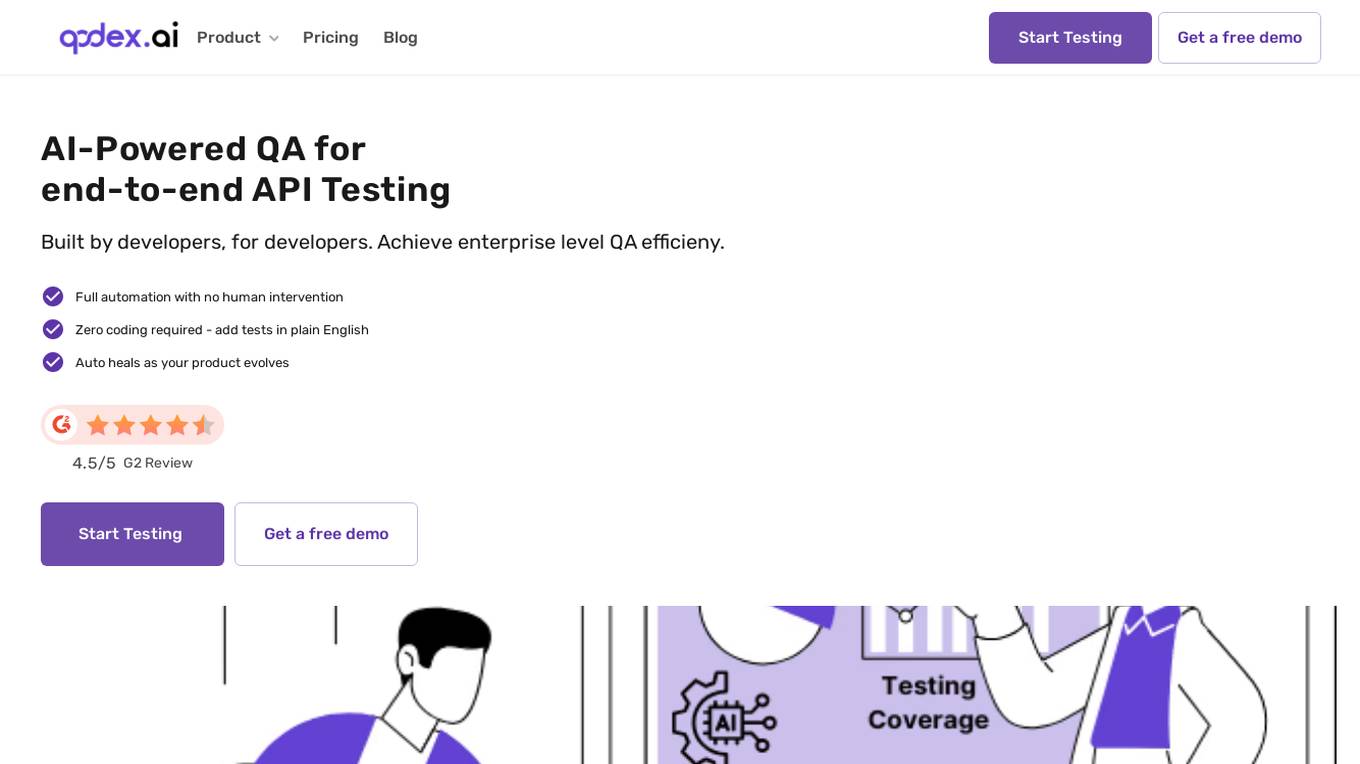
Qodex
Qodex is an AI-powered QA tool designed for end-to-end API testing, built by developers for developers. It offers enterprise-level QA efficiency with full automation and zero coding required. The tool auto-generates tests in plain English and adapts as the product evolves. Qodex also provides interactive API documentation and seamless integration, making it a cost-effective solution for enhancing productivity and efficiency in software testing.
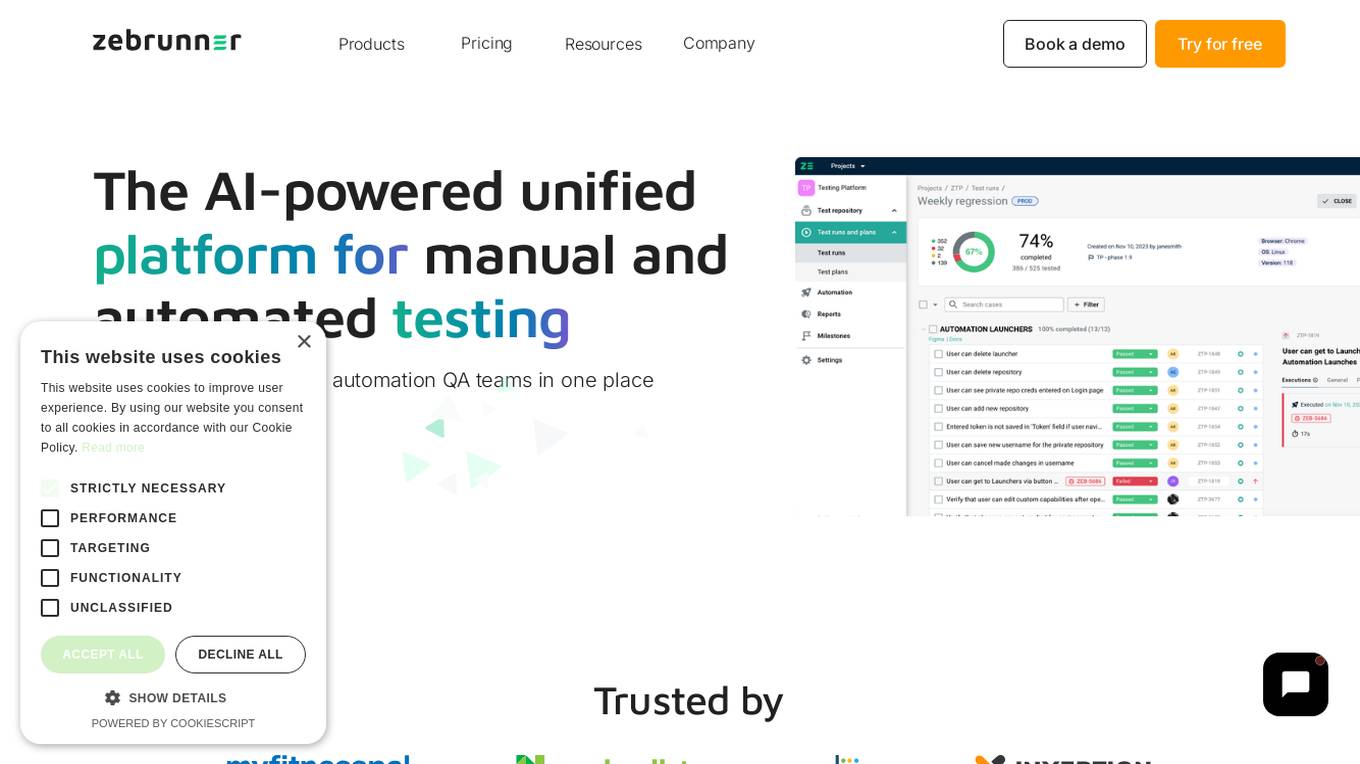
Zebrunner
Zebrunner is an AI-powered unified platform for manual and automated testing, designed to synchronize manual and automation QA teams in one place. It offers features such as test management, automation reporting, and test case management, with capabilities for generating new test cases, autocomplete existing ones, and categorize failures using AI. Zebrunner provides a clean and intuitive UI, unmatched performance, powerful reporting, rich integrations, and 24/7 support for efficient testing processes. It also offers customizable dashboards, sharable reports, and seamless integrations with Jira and other SDLC tools for streamlined workflows.
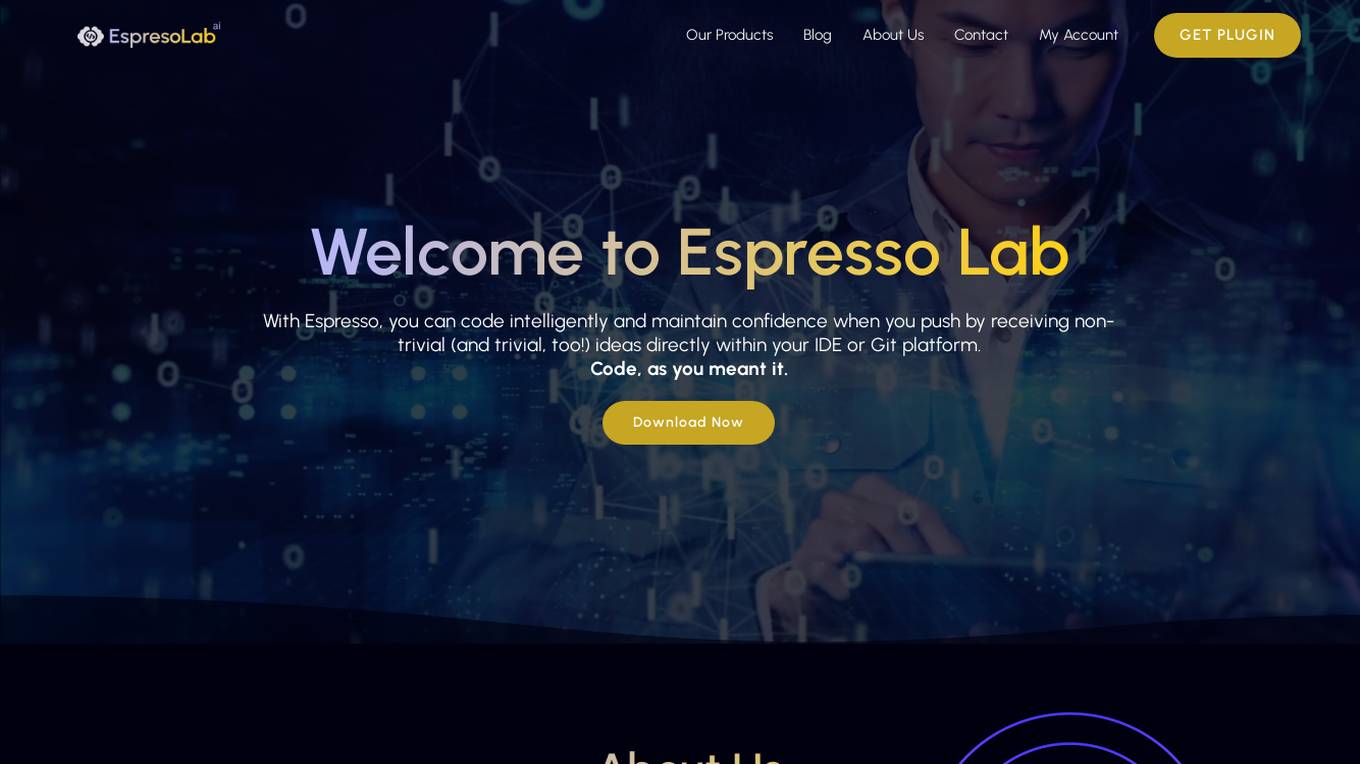
Espresso Lab
Espresso Lab is a cutting-edge AI tool designed to empower software engineers by providing AI-generated UI tests, effortless element identification, and comprehensive test cases. It leverages GPT-4 technology to streamline the QA process and enhance productivity. The tool offers flexible pricing options and innovative solutions to push the boundaries of software engineering.
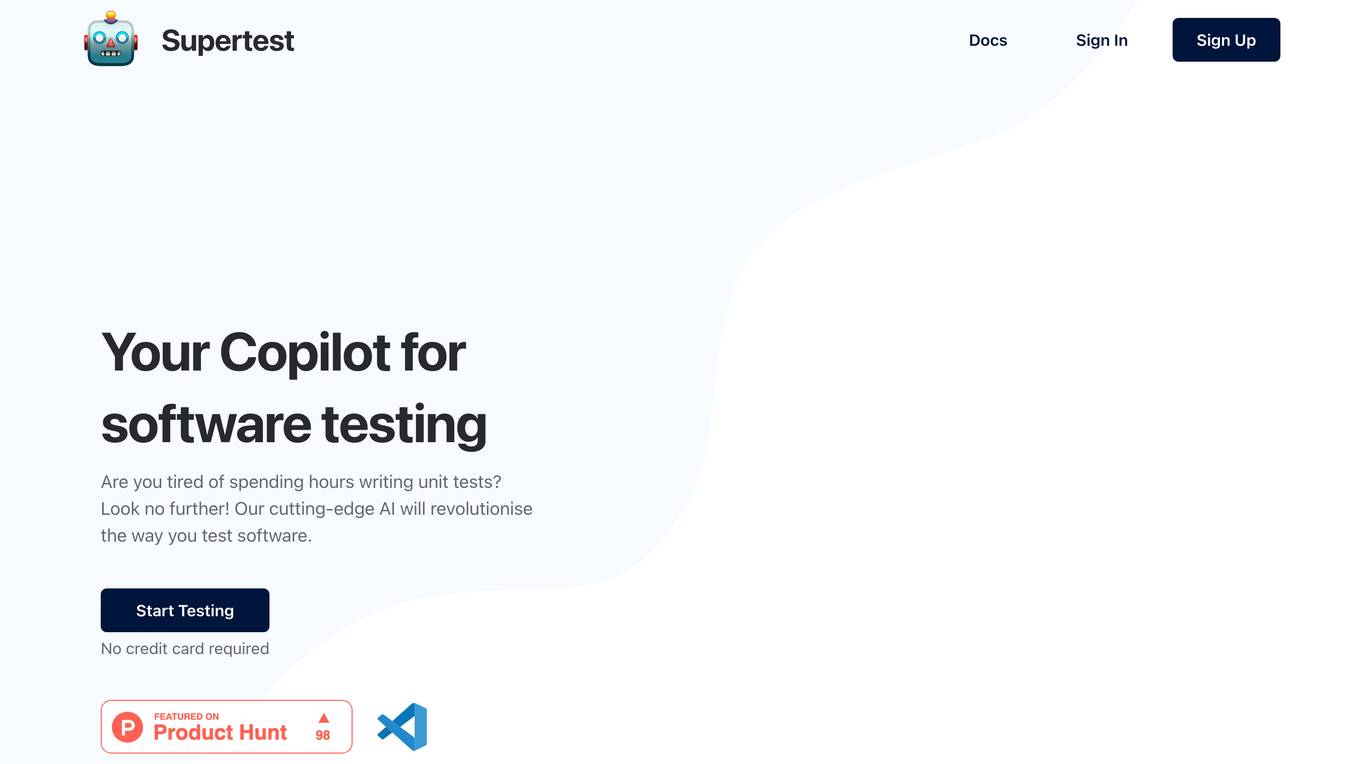
Supertest
Supertest is an AI copilot designed for software testing, offering a cutting-edge solution to revolutionize the way unit tests are written. By integrating seamlessly with VS Code, Supertest allows users to create unit tests in seconds with just one click. The tool automates various day-to-day QA engineering tasks using AI technology, providing a game-changing solution for development teams to save time and improve efficiency.
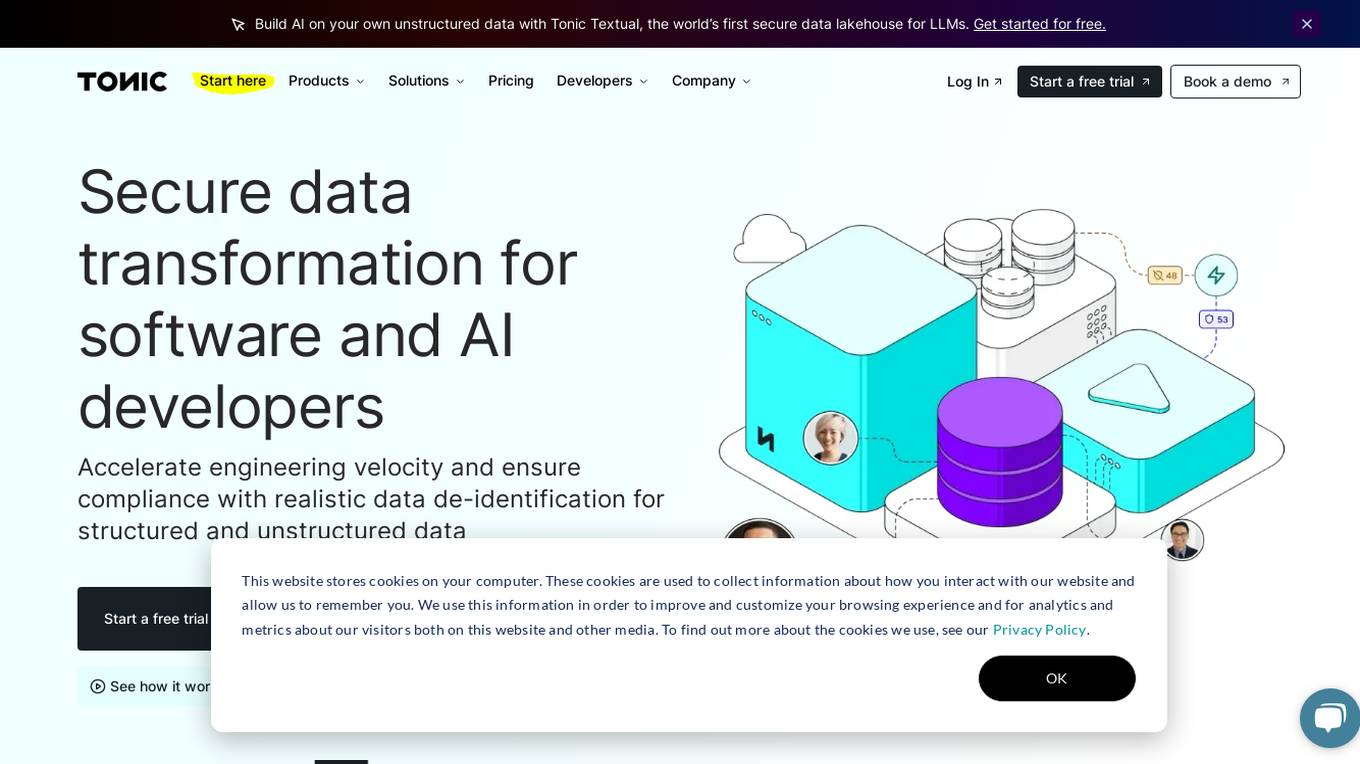
Tonic.ai
Tonic.ai is a platform that allows users to build AI models on their unstructured data. It offers various products for software development and LLM development, including tools for de-identifying and subsetting structured data, scaling down data, handling semi-structured data, and managing ephemeral data environments. Tonic.ai focuses on standardizing, enriching, and protecting unstructured data, as well as validating RAG systems. The platform also provides integrations with relational databases, data lakes, NoSQL databases, flat files, and SaaS applications, ensuring secure data transformation for software and AI developers.
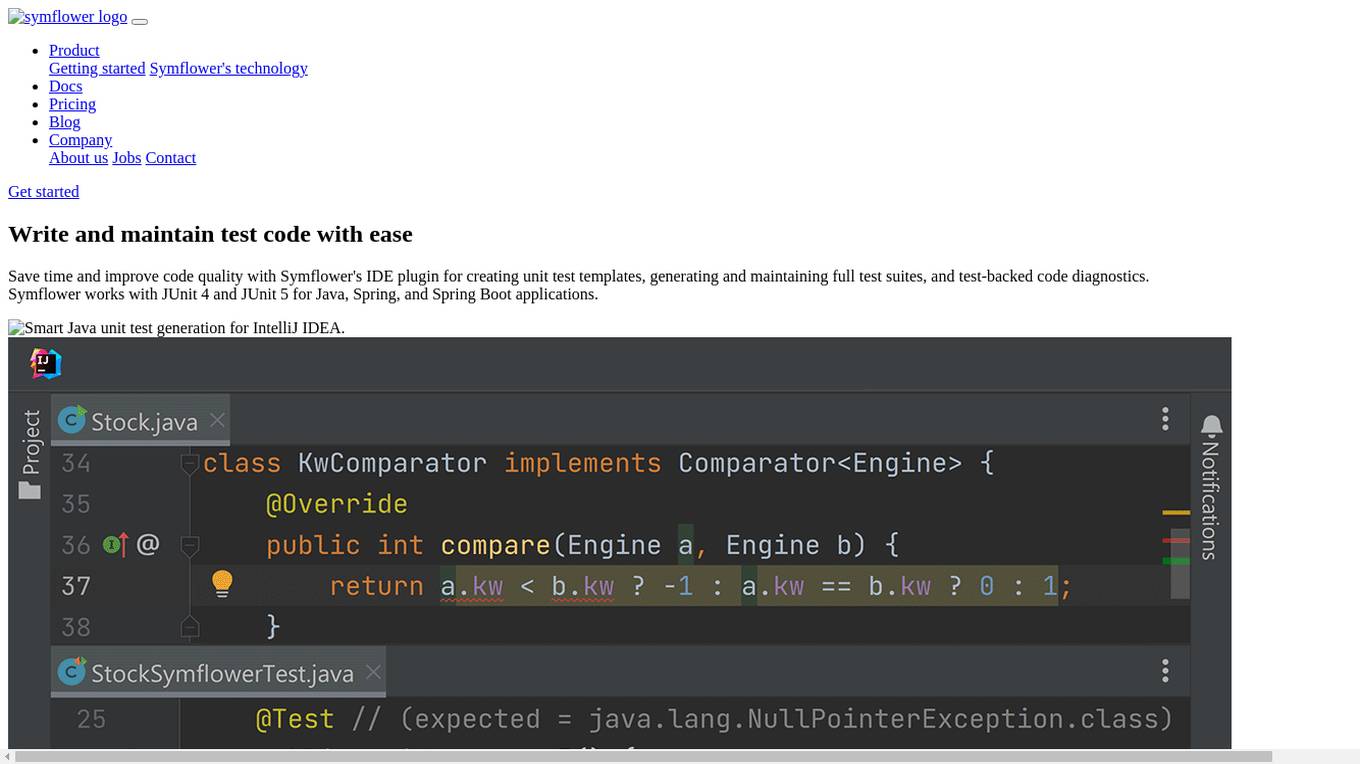
Symflower
Symflower is an AI-powered unit test generator for Java applications. It helps developers write and maintain test code with ease, saving time and improving code quality. Symflower works with JUnit 4 and JUnit 5 for Java, Spring, and Spring Boot applications.
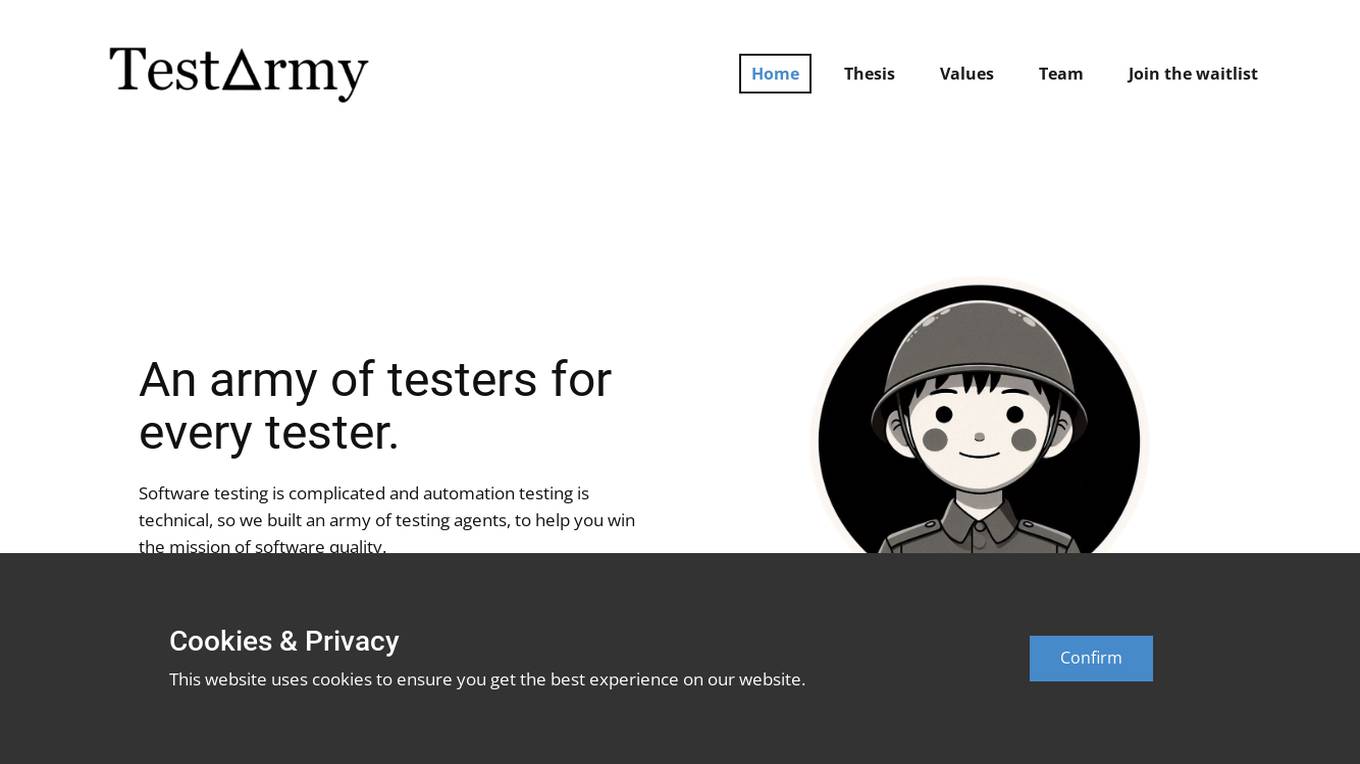
TestArmy
TestArmy is an AI-driven software testing platform that offers an army of testing agents to help users achieve software quality by balancing cost, speed, and quality. The platform leverages AI agents to generate Gherkin tests based on user specifications, automate test execution, and provide detailed logs and suggestions for test maintenance. TestArmy is designed for rapid scaling and adaptability to changes in the codebase, making it a valuable tool for both technical and non-technical users.
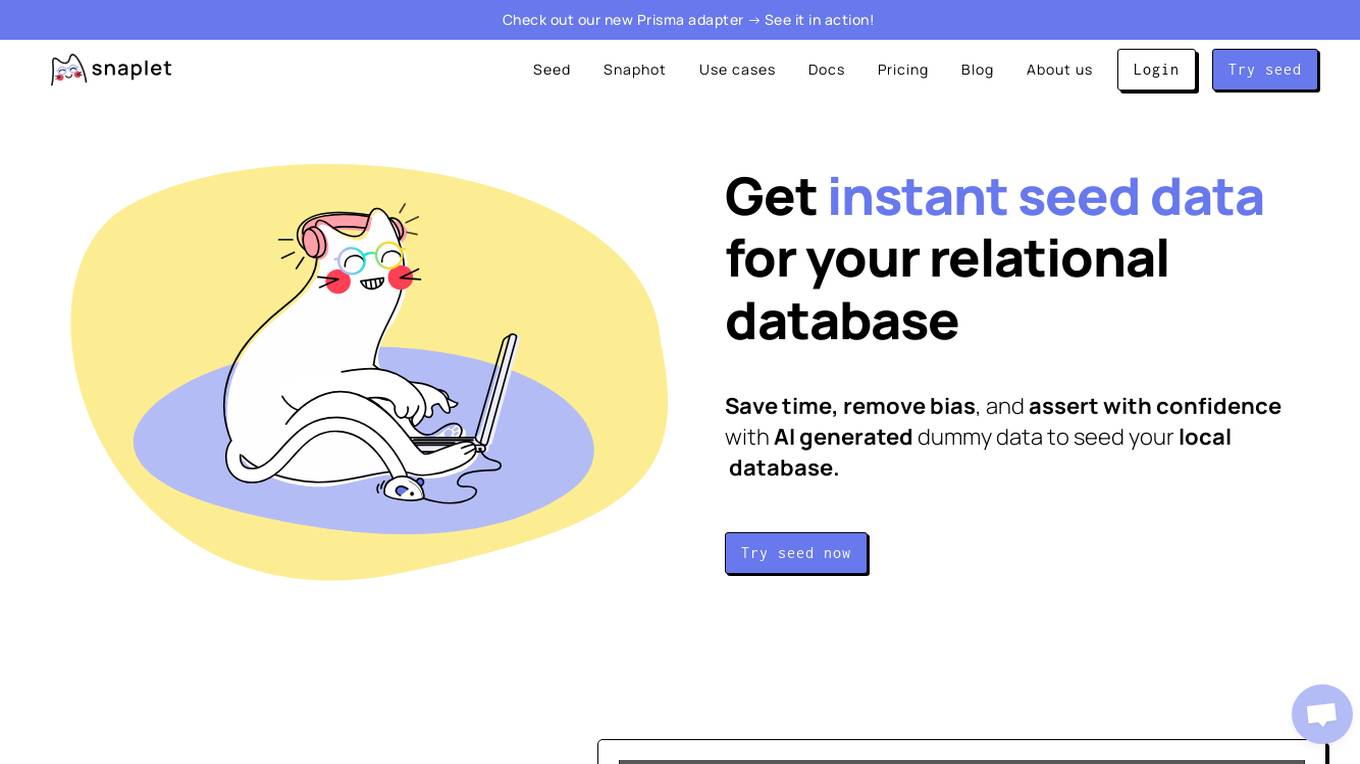
Snaplet
Snaplet is a data management tool for developers that provides AI-generated dummy data for local development, end-to-end testing, and debugging. It uses a real programming language (TypeScript) to define and edit data, ensuring type safety and auto-completion. Snaplet understands database structures and relationships, automatically transforming personally identifiable information and seeding data accordingly. It integrates seamlessly into development workflows, providing data where it's needed most: on local machines, for CI/CD testing, and preview environments.
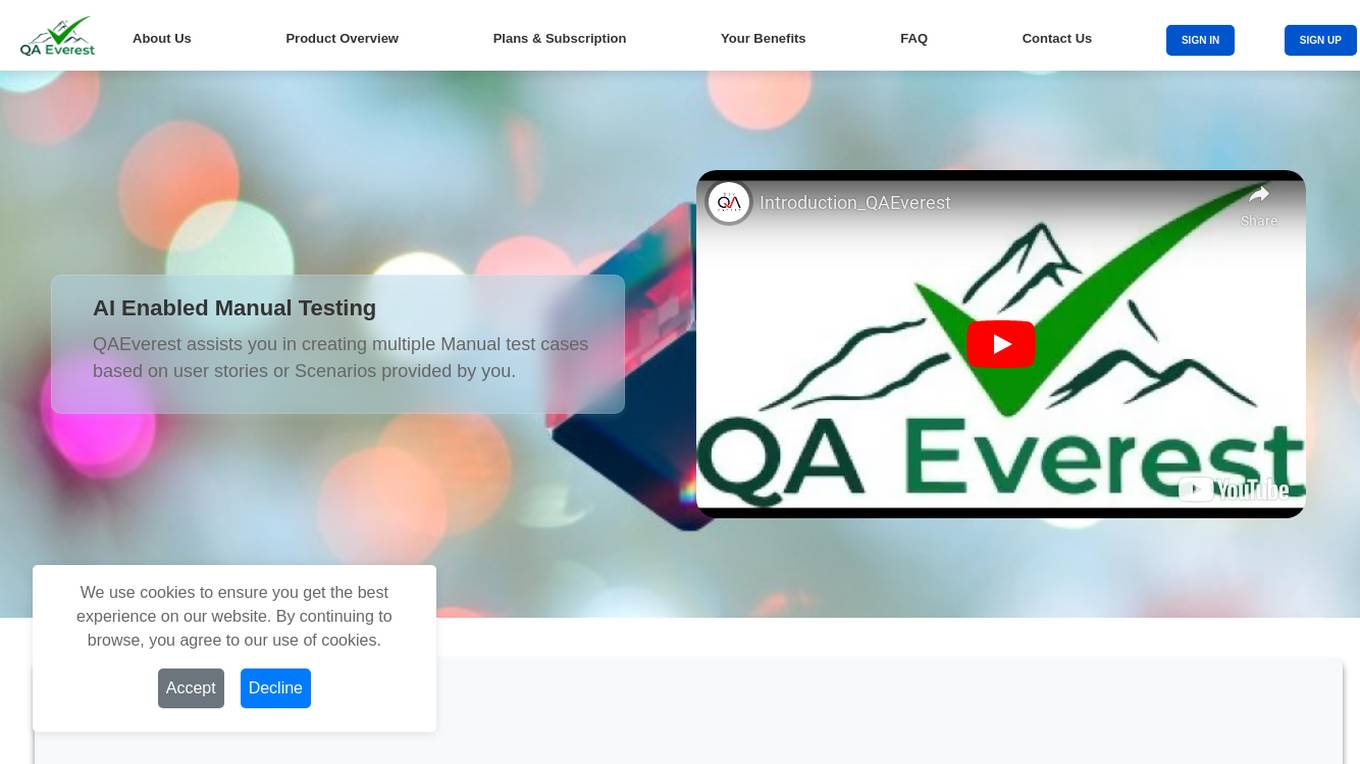
AI Generated Test Cases
AI Generated Test Cases is an innovative tool that leverages artificial intelligence to automatically generate test cases for software applications. By utilizing advanced algorithms and machine learning techniques, this tool can efficiently create a comprehensive set of test scenarios to ensure the quality and reliability of software products. With AI Generated Test Cases, software development teams can save time and effort in the testing phase, leading to faster release cycles and improved overall productivity.
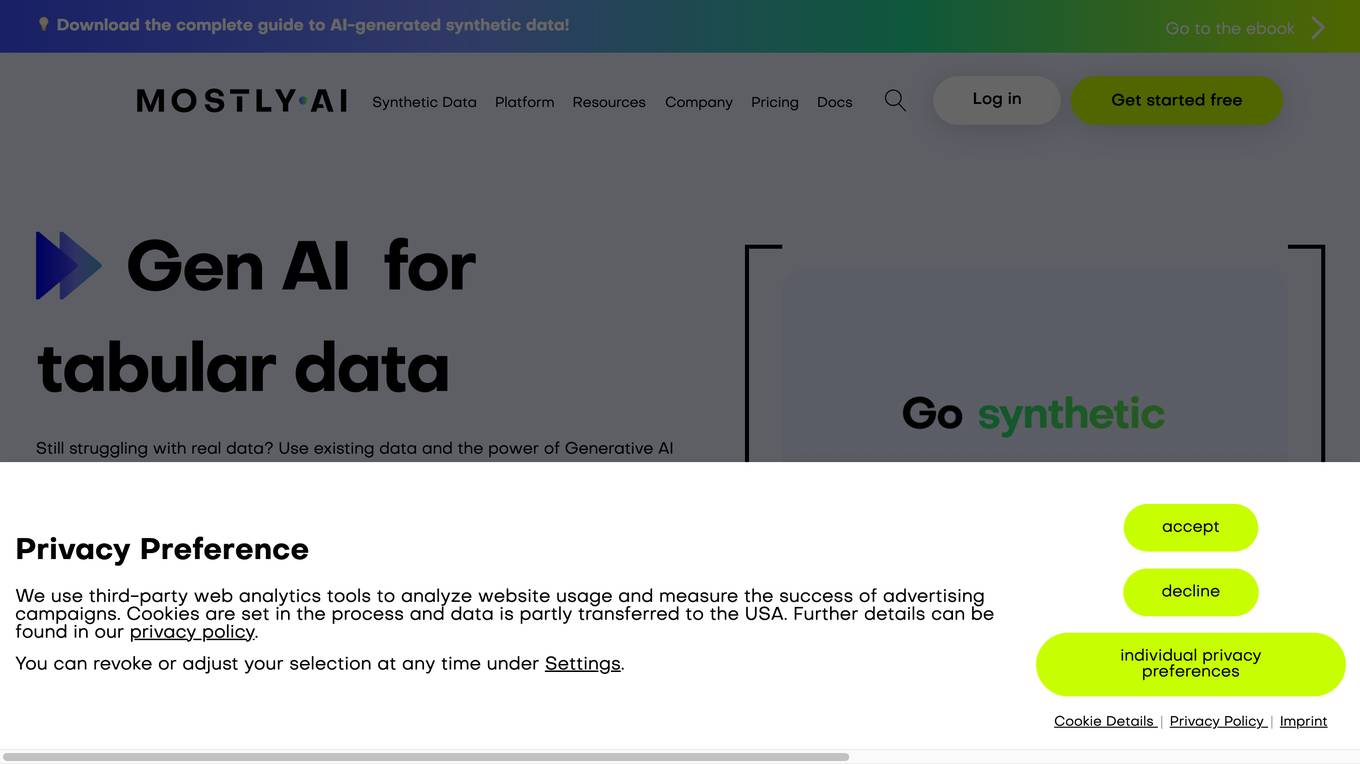
MOSTLY AI Platform
The website offers a Synthetic Data Generation platform with the highest accuracy for free. It provides detailed information on synthetic data, data anonymization, and features a Python Client for data generation. The platform ensures privacy and security, allowing users to create fully anonymous synthetic data from original data. It supports various AI/ML use cases, self-service analytics, testing & QA, and data sharing. The platform is designed for Enterprise organizations, offering scalability, privacy by design, and the world's most accurate synthetic data.
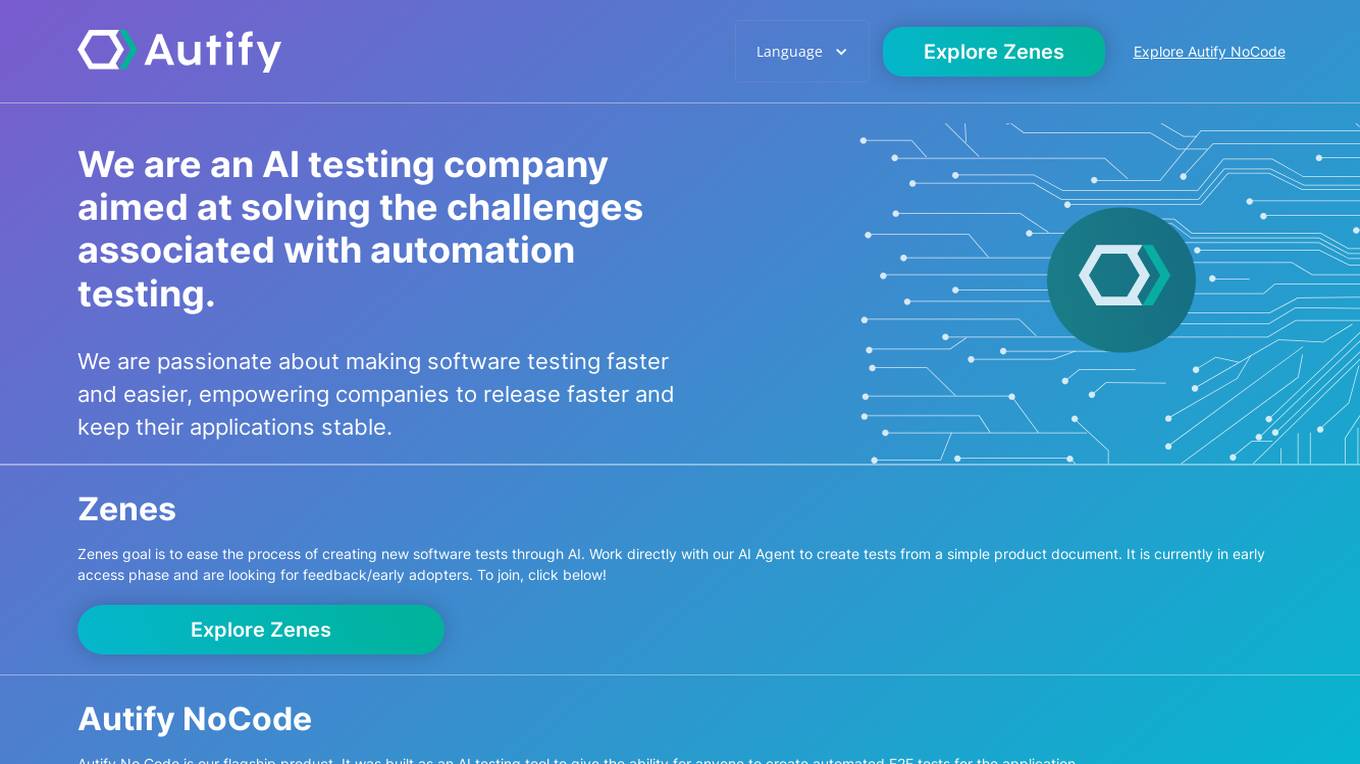
Autify
Autify is an AI testing company focused on solving challenges in automation testing. They aim to make software testing faster and easier, enabling companies to release faster and maintain application stability. Their flagship product, Autify No Code, allows anyone to create automated end-to-end tests for applications. Zenes, their new product, simplifies the process of creating new software tests through AI. Autify is dedicated to innovation in the automation testing space and is trusted by leading organizations.
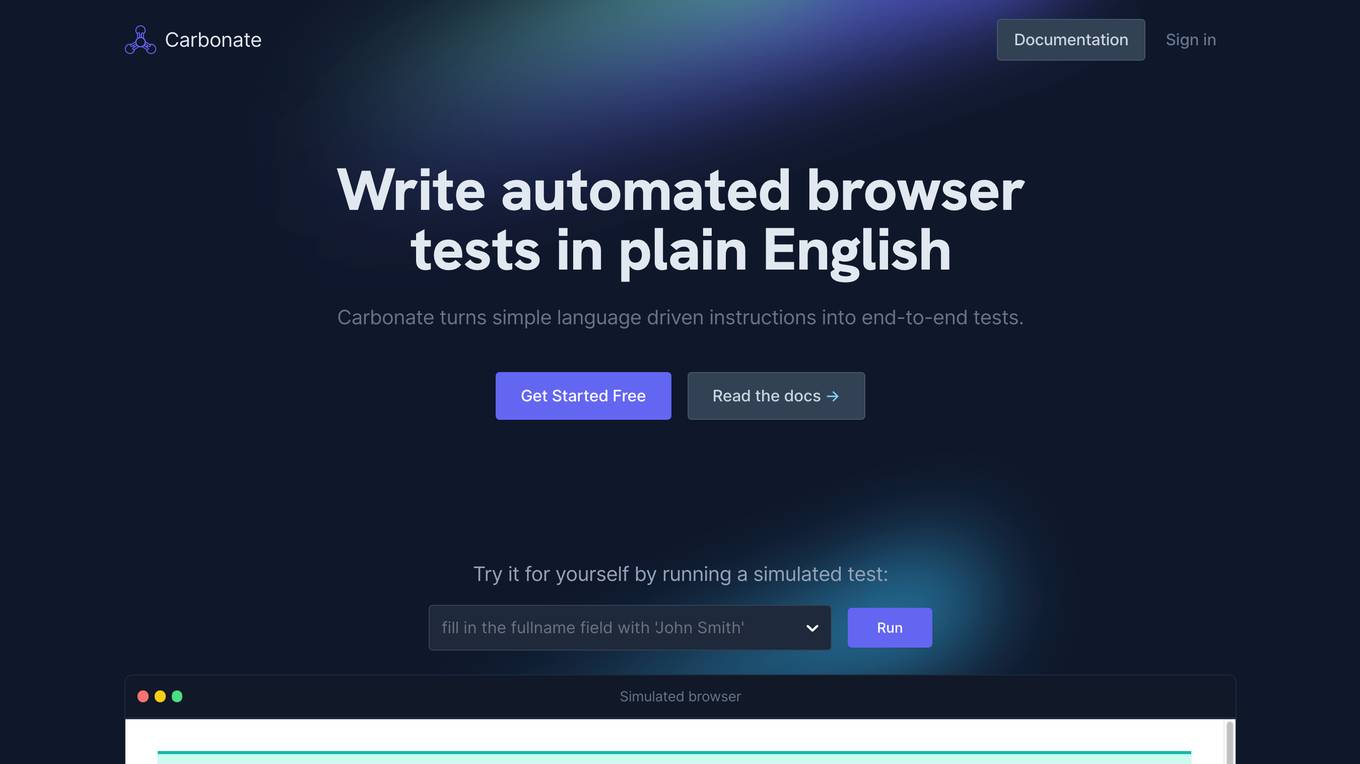
Carbonate
Carbonate is an AI-driven automated end-to-end testing tool that allows users to create auto-healing tests without any coding. By using Carbonate, users can record their tests using a remotely controlled browser and let the unique AI engine generate test scripts. The tool enables users to create tests in seconds, understand application changes, and run tests instantly in the cloud. Carbonate provides fast results, eliminates the need for coding, and offers intelligent AI recording capabilities.
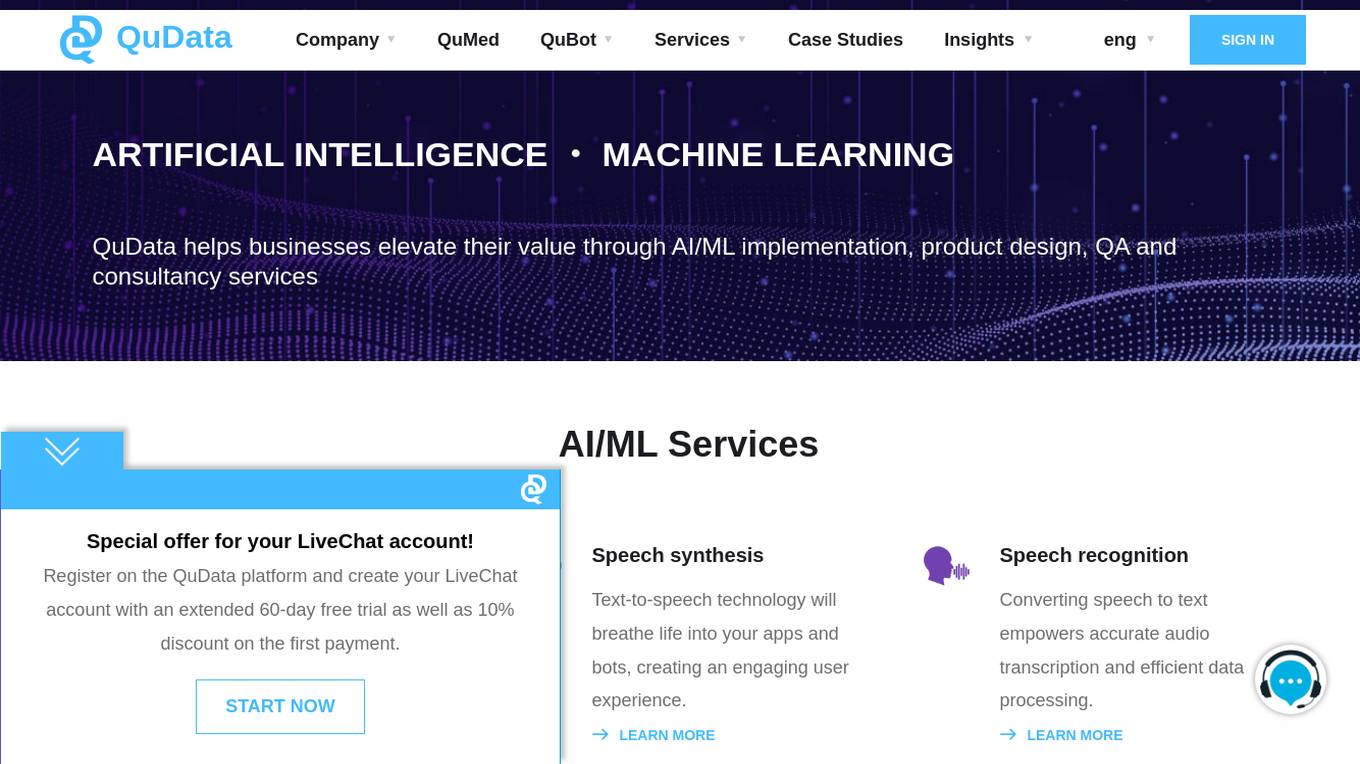
QuData
QuData is an AI and ML solutions provider that helps businesses enhance their value through AI/ML implementation, product design, QA, and consultancy services. They offer a range of services including ChatGPT integration, speech synthesis, speech recognition, image analysis, text analysis, predictive analytics, big data analysis, innovative research, and DevOps solutions. QuData has extensive experience in machine learning and artificial intelligence, enabling them to create high-quality solutions for specific industries, helping customers save development costs and achieve their business goals.
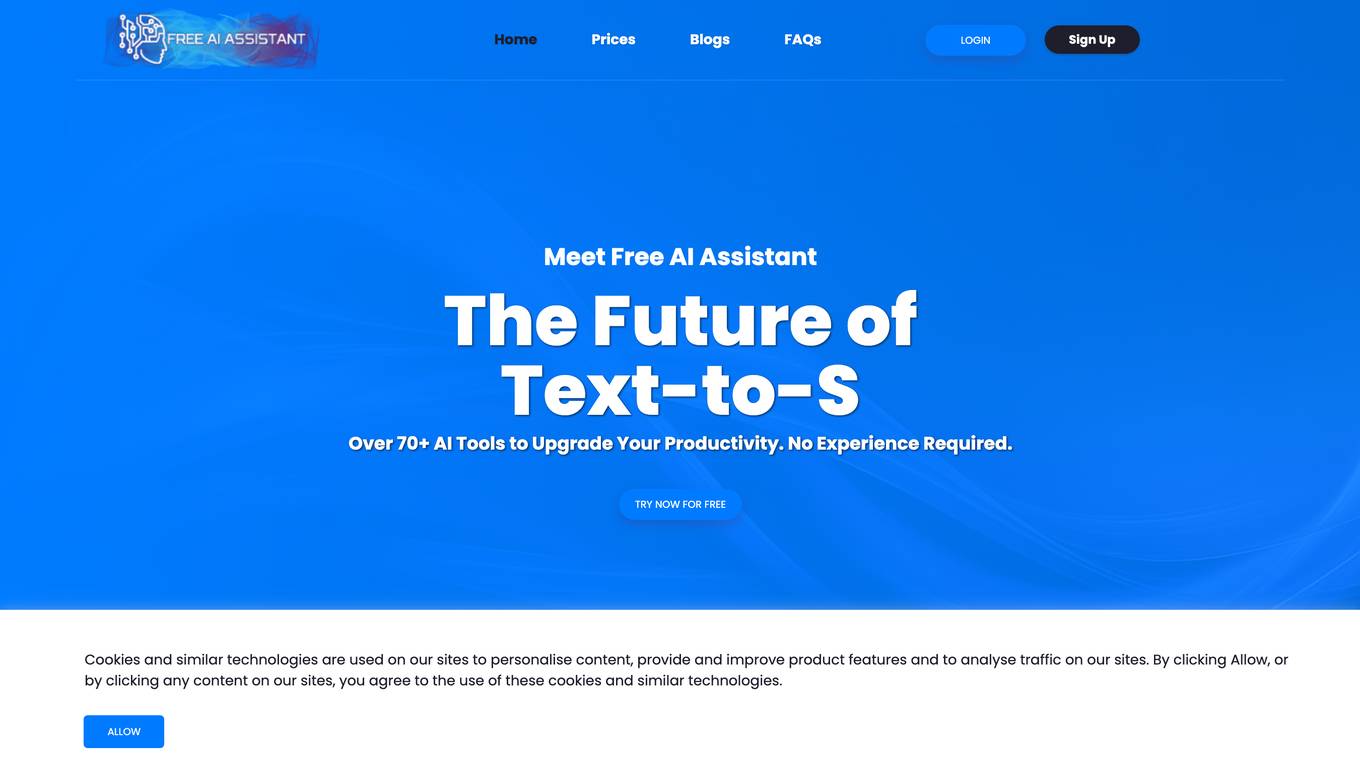
Free AI Assistant
Free AI Assistant is a comprehensive AI-powered platform that offers a suite of over 70 tools to enhance productivity and automate tasks. It utilizes cutting-edge AI technologies such as OpenAI's GPT-3.5 and GPT-4 for text generation and tasks, and Dall-E and Stable Diffusion for image generation. With multilingual support for over 25 languages, Free AI Assistant empowers users to communicate effectively and expand their reach. The platform is designed to simplify tasks, foster creativity, and boost productivity for individuals and businesses alike.
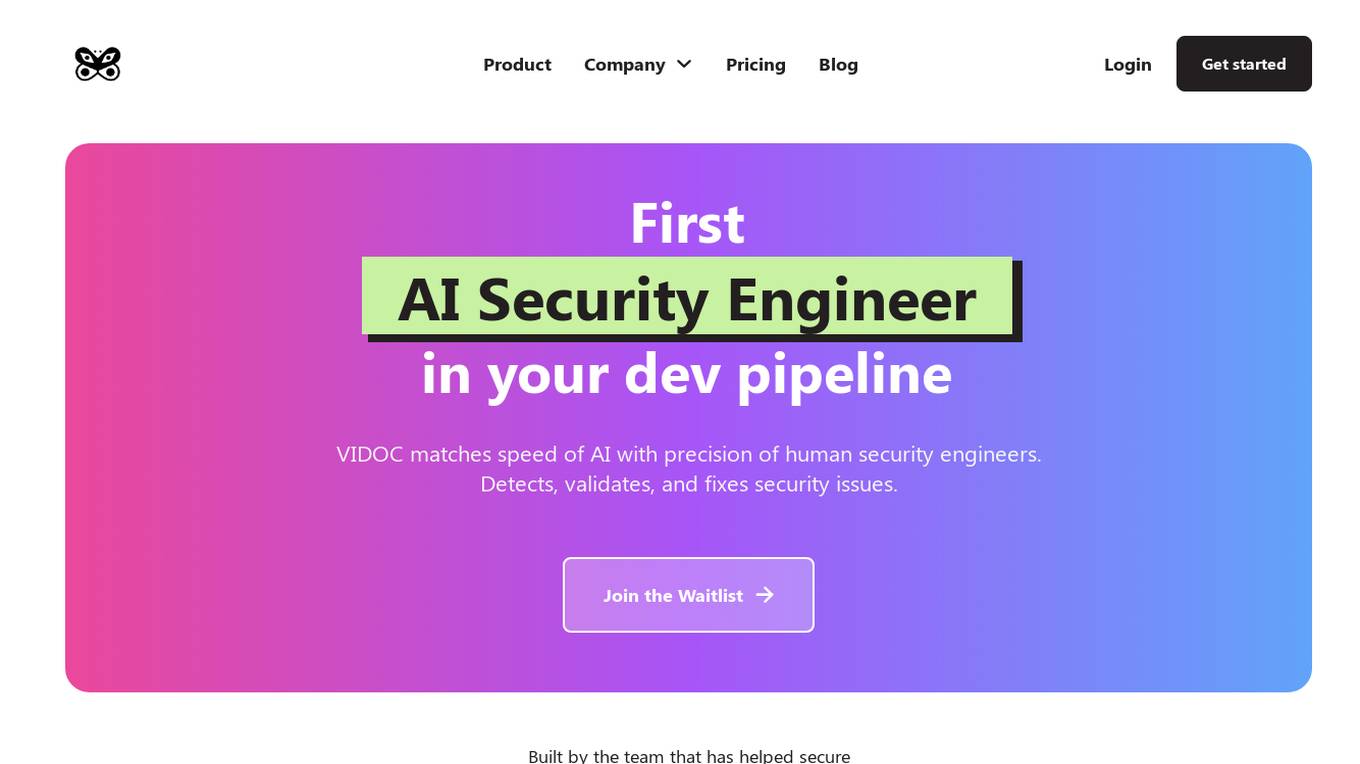
VIDOC
VIDOC is an AI-powered security engineer that automates code review and penetration testing. It continuously scans and reviews code to detect and fix security issues, helping developers deliver secure software faster. VIDOC is easy to use, requiring only two lines of code to be added to a GitHub Actions workflow. It then takes care of the rest, providing developers with a tailored code solution to fix any issues found.
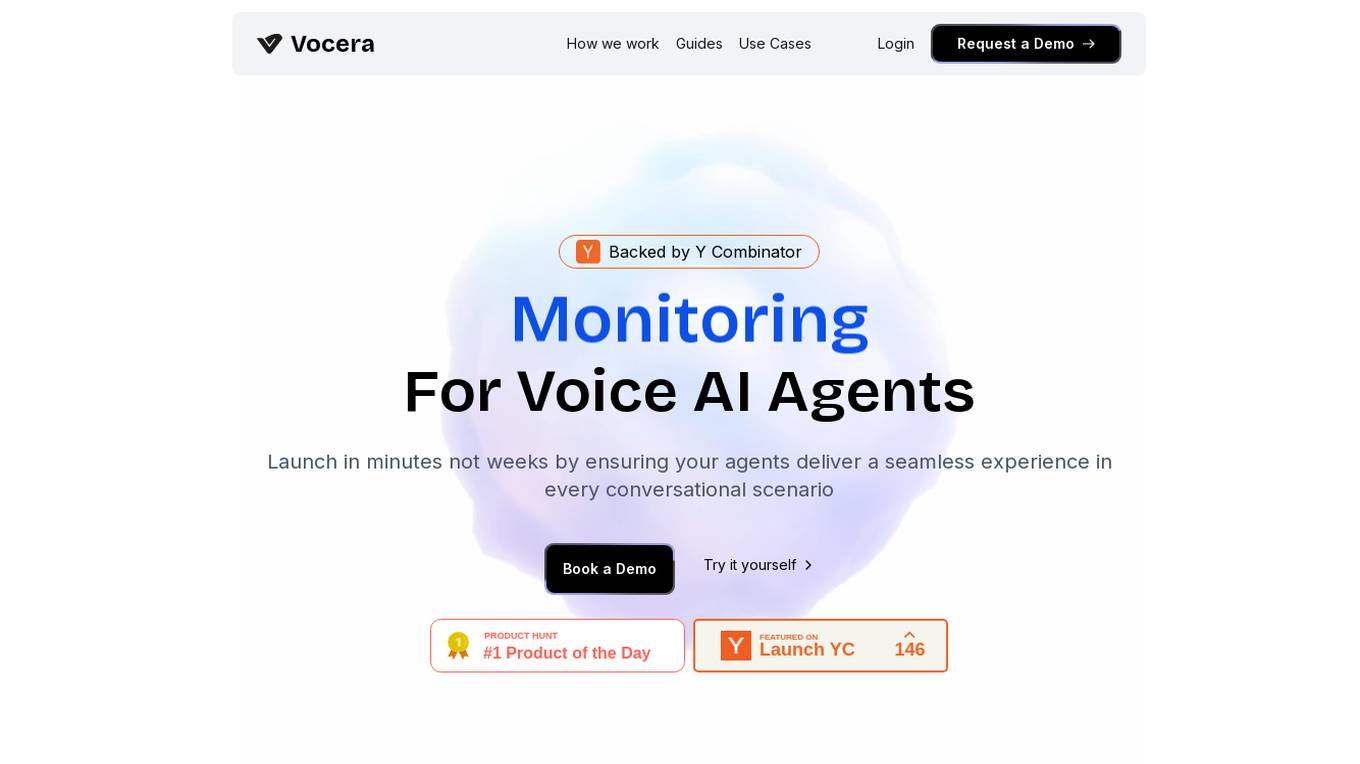
Vocera
Vocera is an AI voice agent testing tool that allows users to test and monitor voice AI agents efficiently. It enables users to launch voice agents in minutes, ensuring a seamless conversational experience. With features like testing against AI-generated datasets, simulating scenarios, and monitoring AI performance, Vocera helps in evaluating and improving voice agent interactions. The tool provides real-time insights, detailed logs, and trend analysis for optimal performance, along with instant notifications for errors and failures. Vocera is designed to work for everyone, offering an intuitive dashboard and data-driven decision-making for continuous improvement.
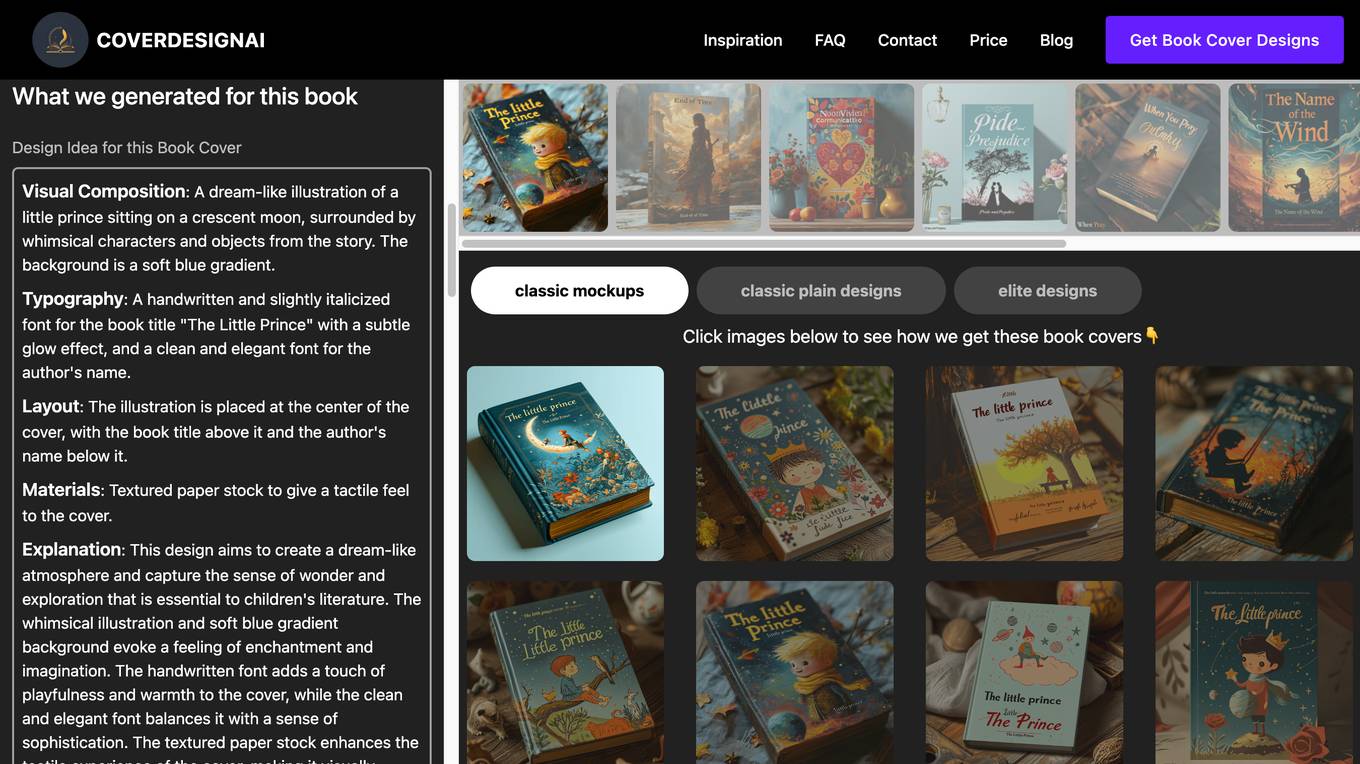
CoverDesignAI
CoverDesignAI is an AI-powered tool that provides authors and publishers with quick and easy design solutions for their book covers. It offers design inspiration tailored to specific book information, as well as Midjourney Prompts for creative exploration. The tool generates classic and elite designs that blend artistic creativity with adherence to authors' requests, ensuring a high-quality finish. CoverDesignAI simplifies AI operations, making professional-grade design accessible to users of all levels. The tool's turnaround time for projects is typically within 24 hours, and users can use the generated images for commercial purposes.
1 - Open Source AI Tools
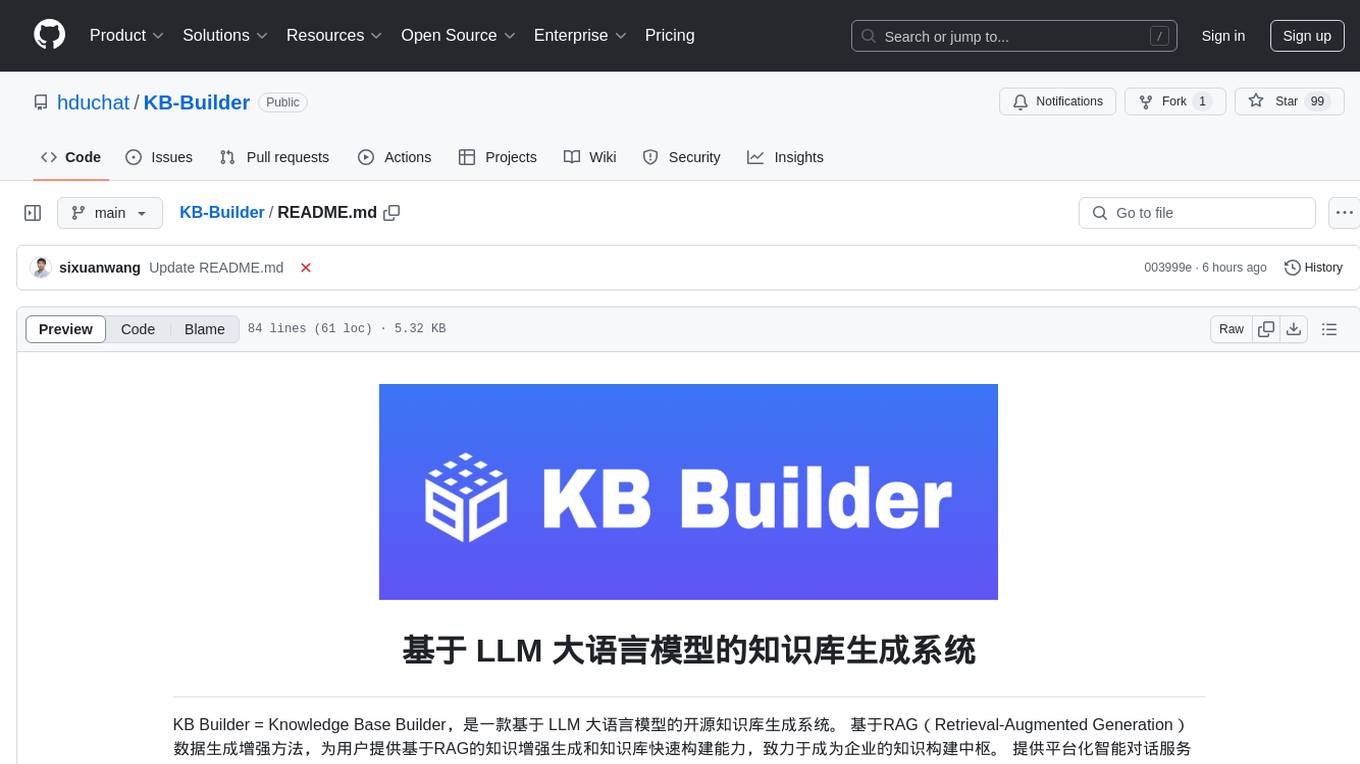
KB-Builder
KB Builder is an open-source knowledge base generation system based on the LLM large language model. It utilizes the RAG (Retrieval-Augmented Generation) data generation enhancement method to provide users with the ability to enhance knowledge generation and quickly build knowledge bases based on RAG. It aims to be the central hub for knowledge construction in enterprises, offering platform-based intelligent dialogue services and document knowledge base management functionality. Users can upload docx, pdf, txt, and md format documents and generate high-quality knowledge base question-answer pairs by invoking large models through the 'Parse Document' feature.
20 - OpenAI Gpts
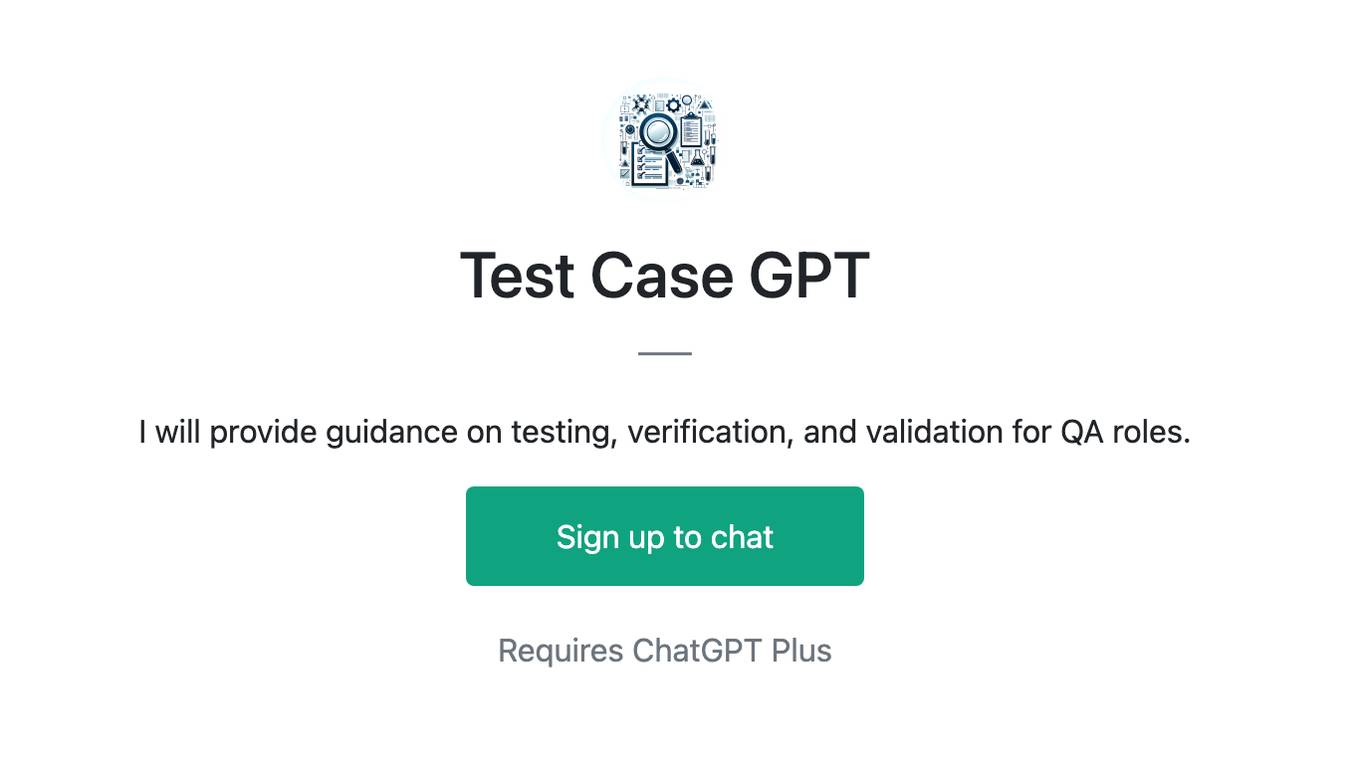
Test Case GPT
I will provide guidance on testing, verification, and validation for QA roles.
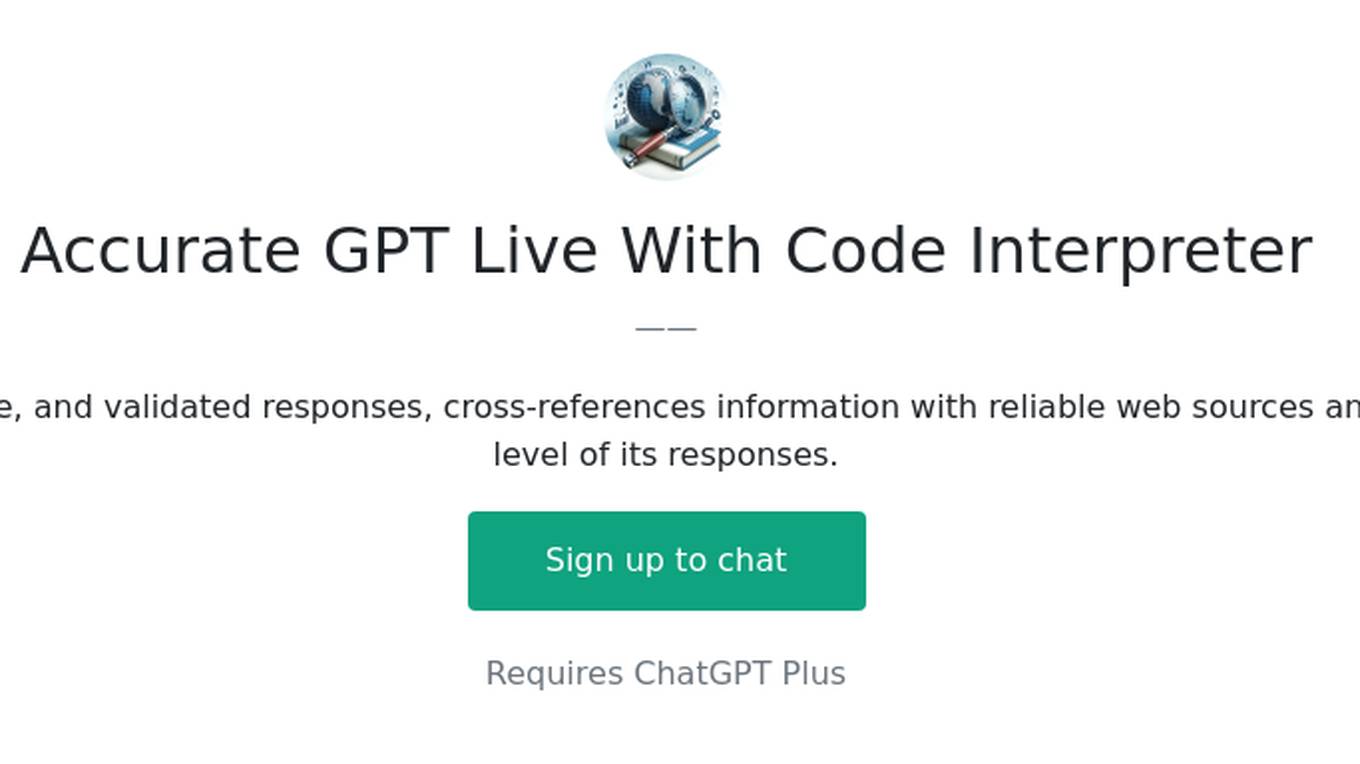
Accurate GPT Live With Code Interpreter
Expert in providing accurate, up-to-date, and validated responses, cross-references information with reliable web sources and informs users about the confidence level of its responses.
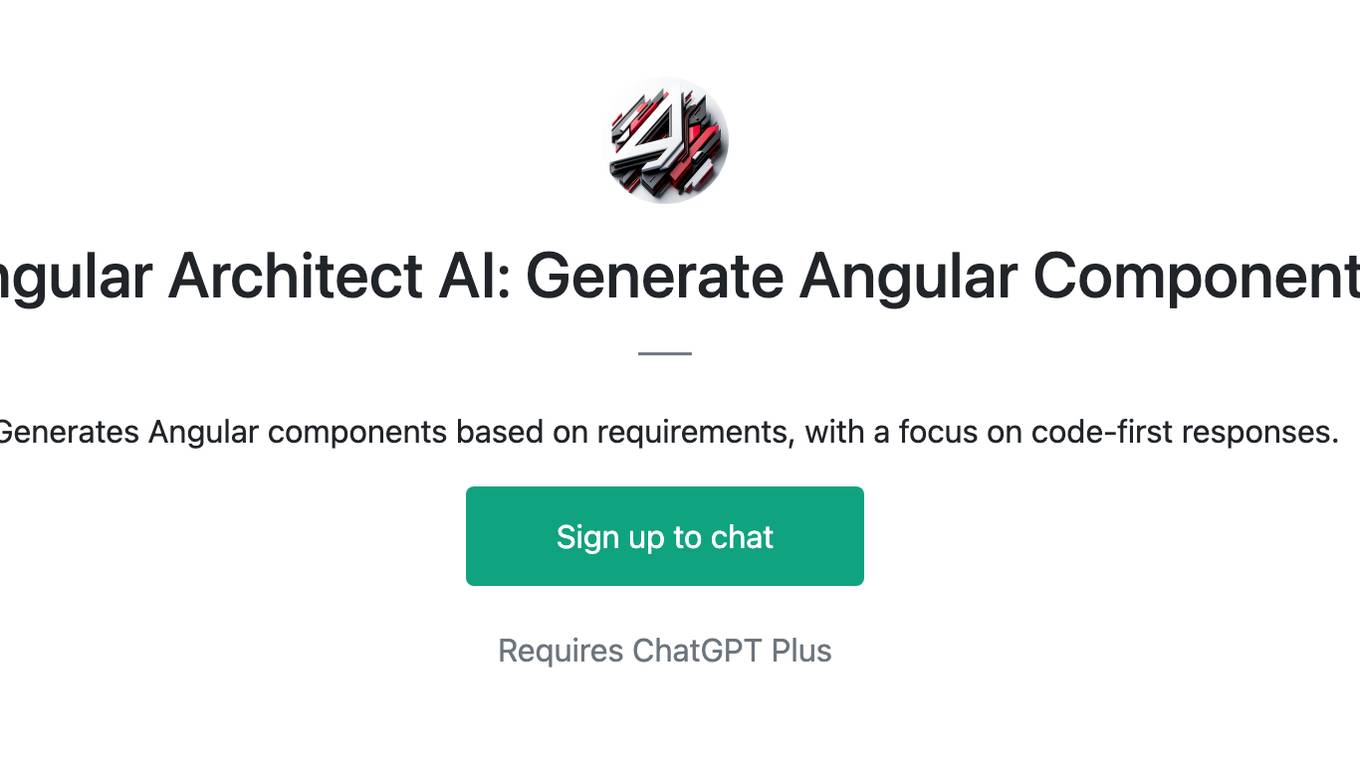
Angular Architect AI: Generate Angular Components
Generates Angular components based on requirements, with a focus on code-first responses.
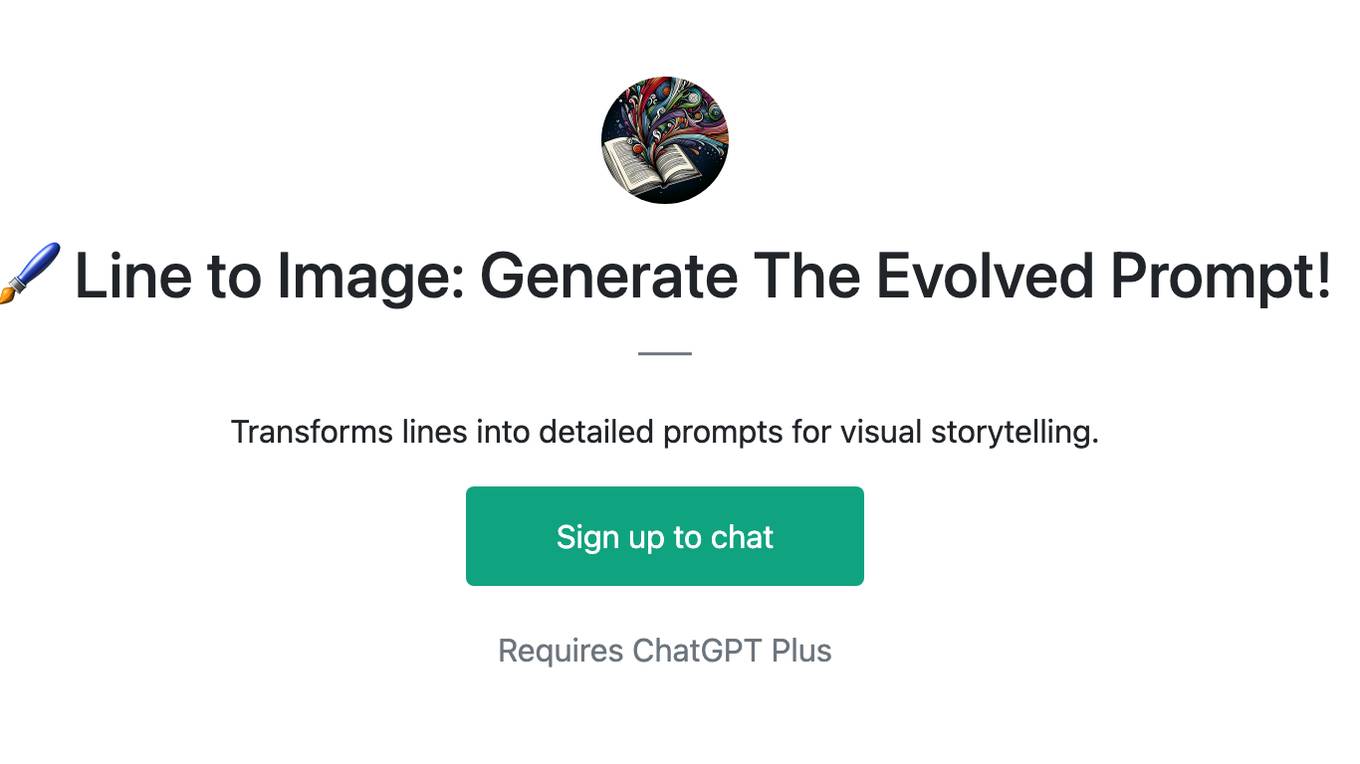
🖌️ Line to Image: Generate The Evolved Prompt!
Transforms lines into detailed prompts for visual storytelling.
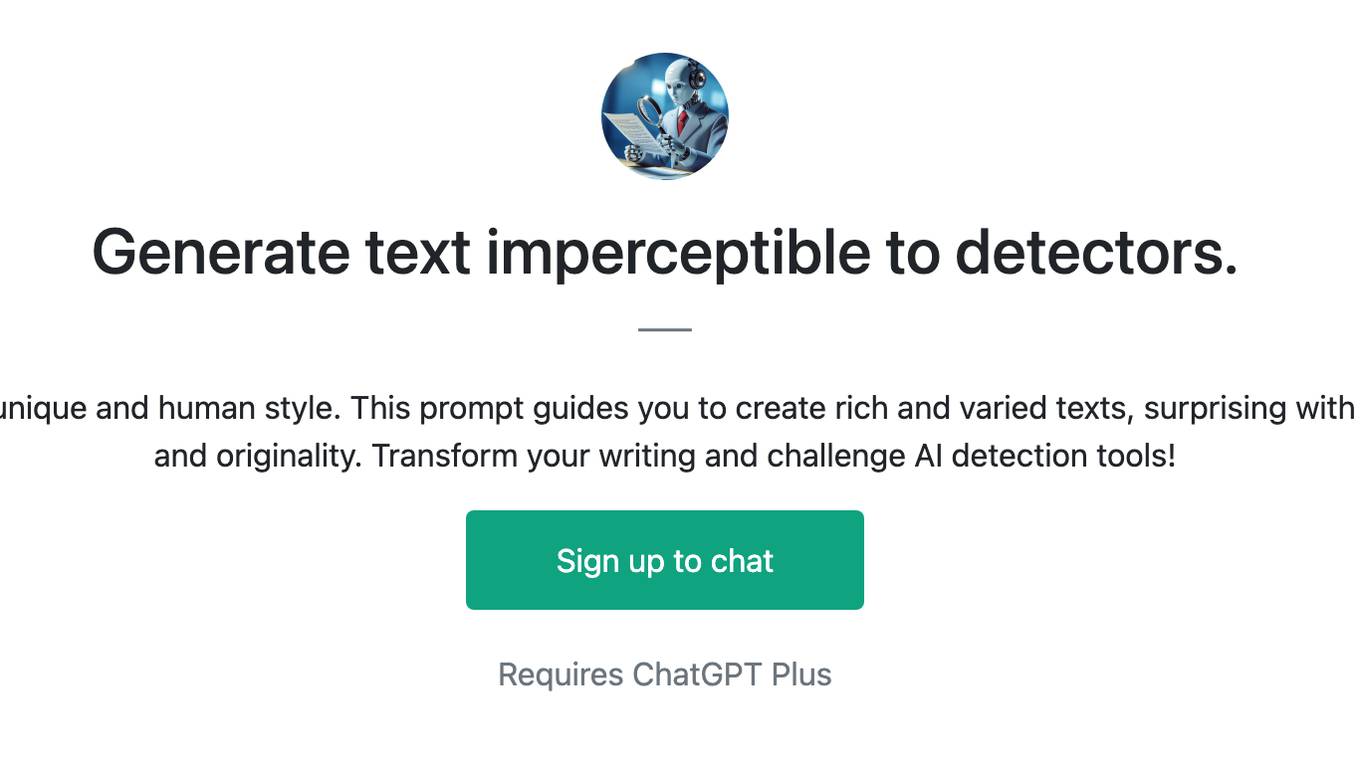
Generate text imperceptible to detectors.
Discover how your writing can shine with a unique and human style. This prompt guides you to create rich and varied texts, surprising with original twists and maintaining coherence and originality. Transform your writing and challenge AI detection tools!
